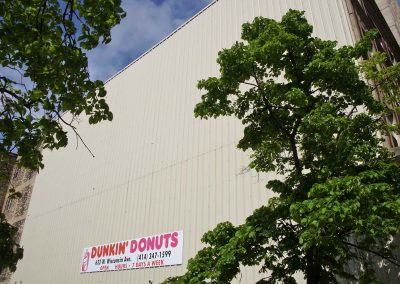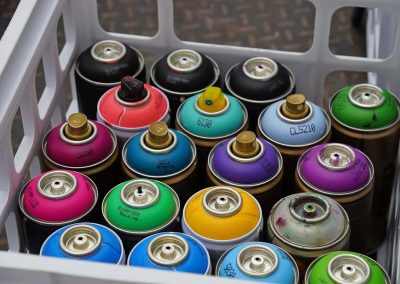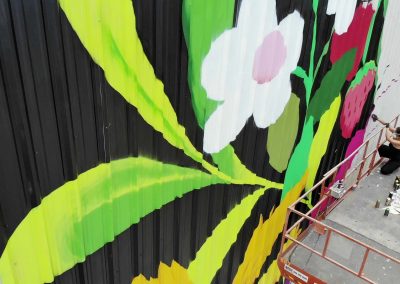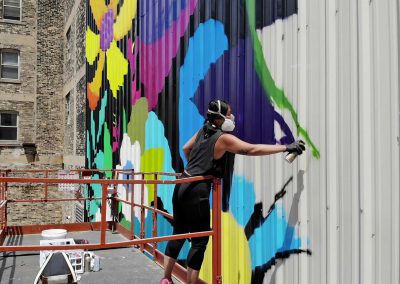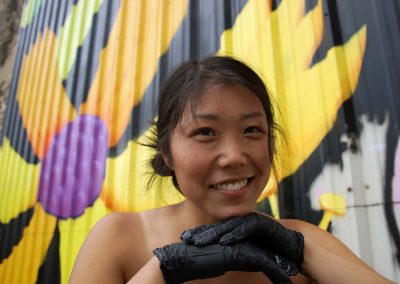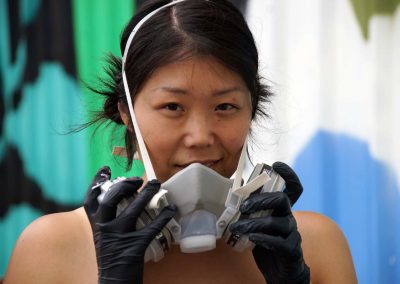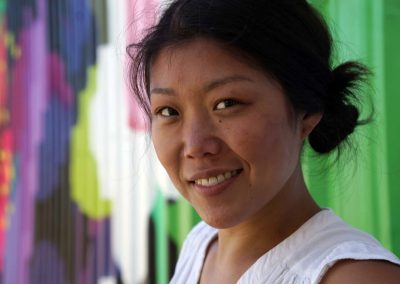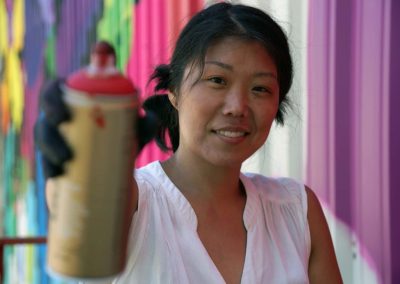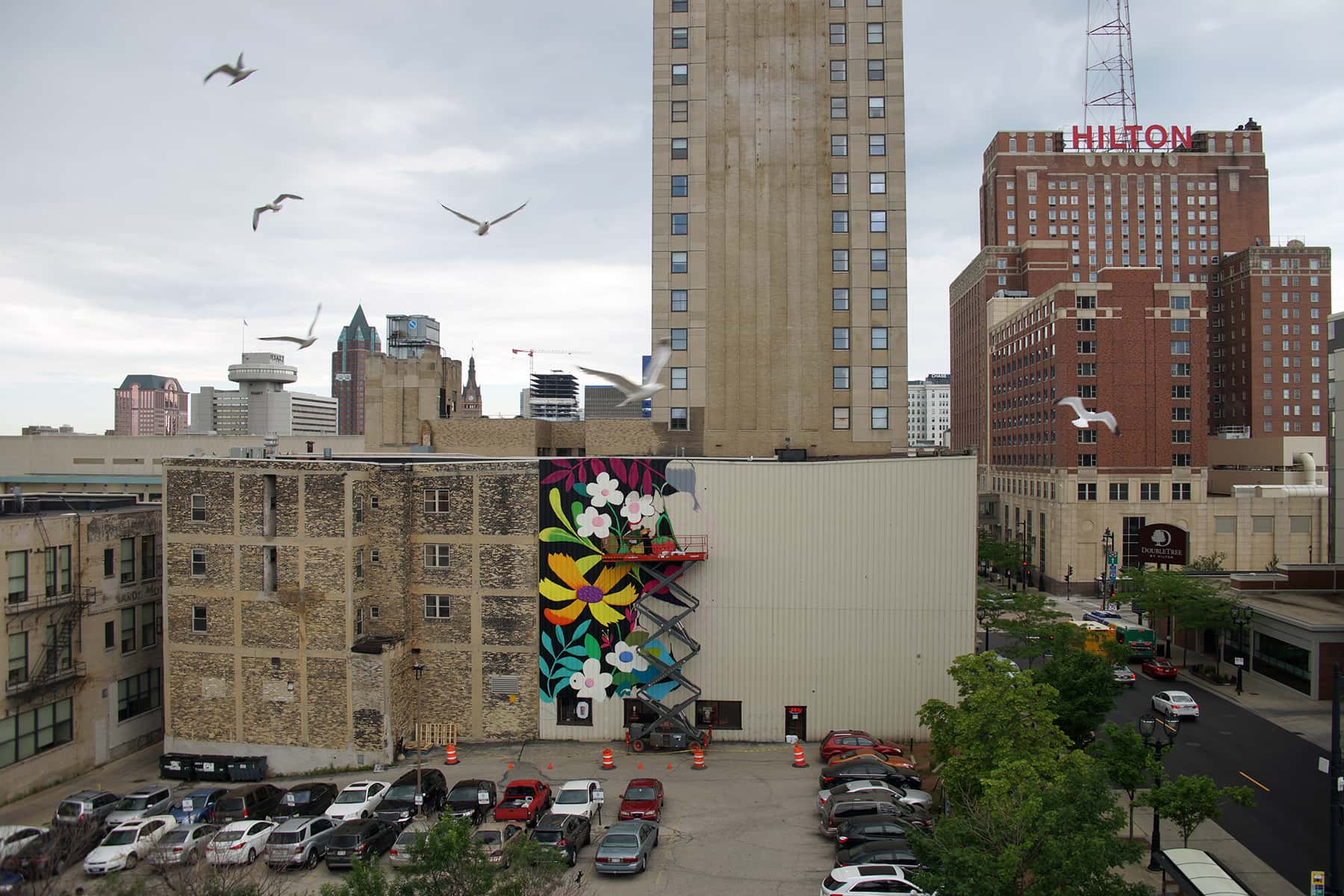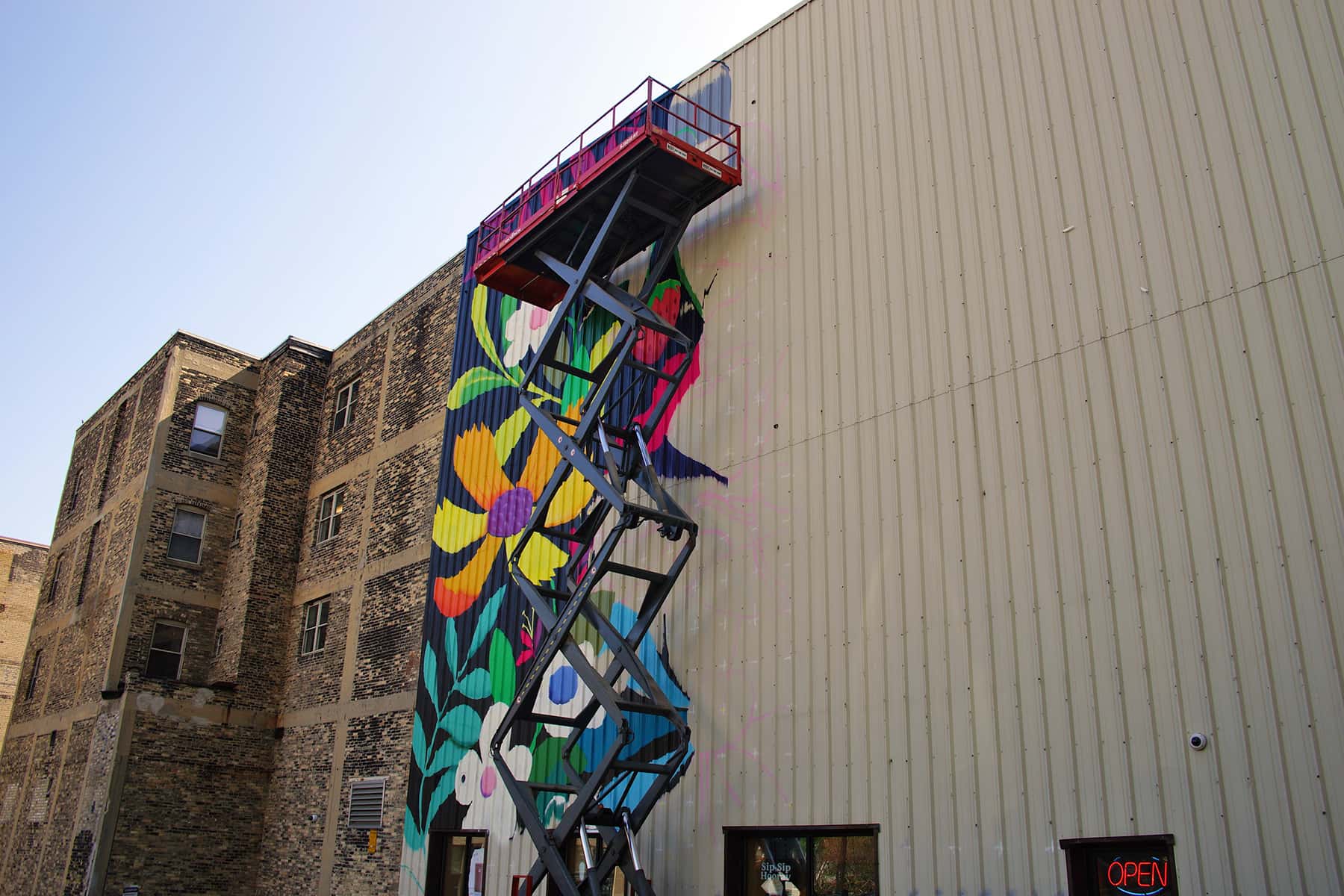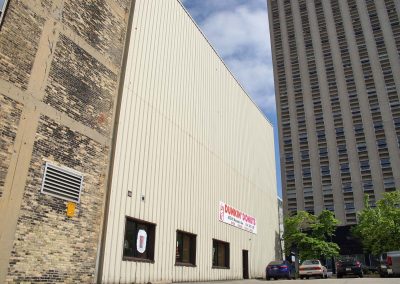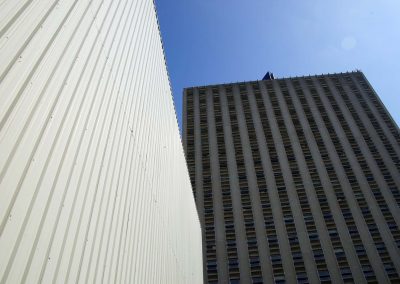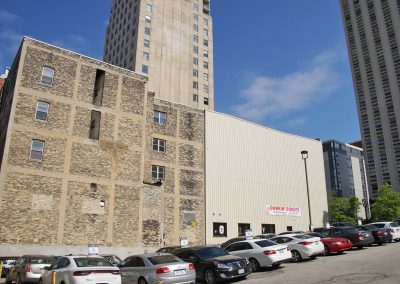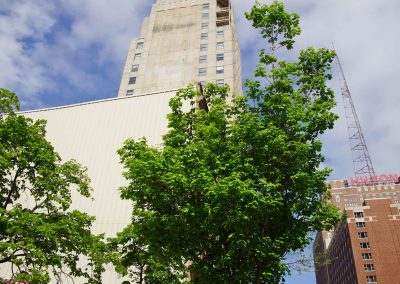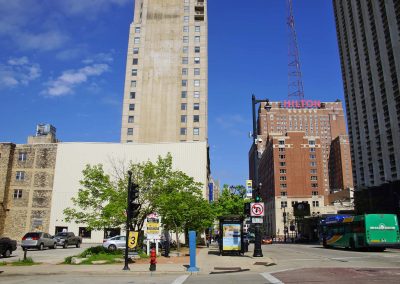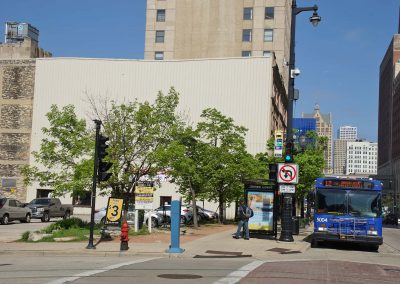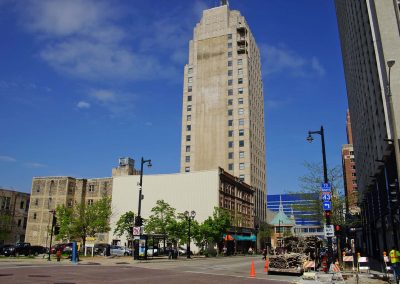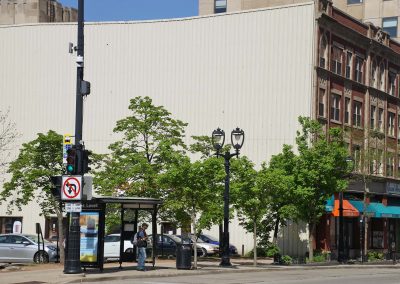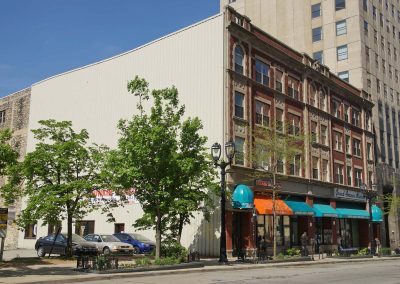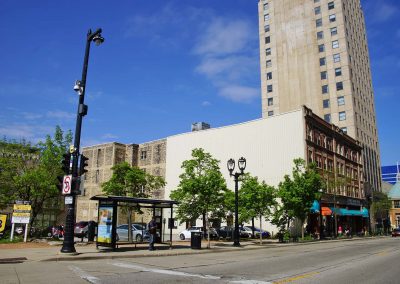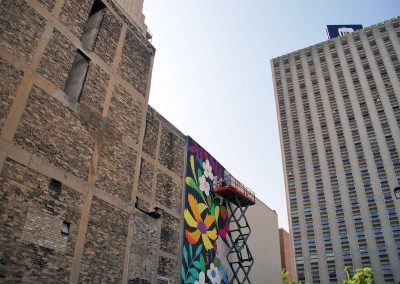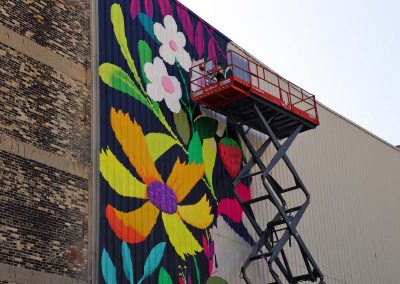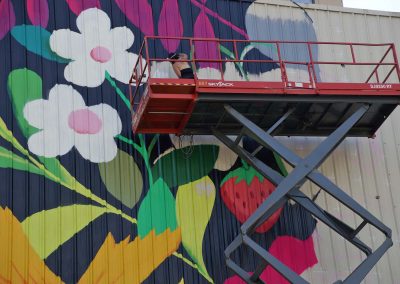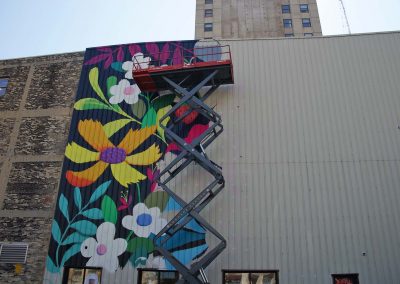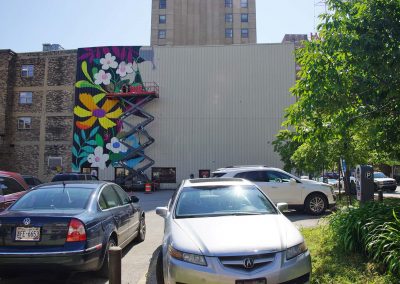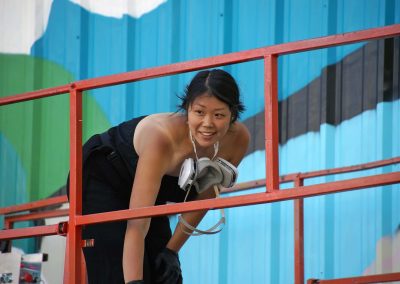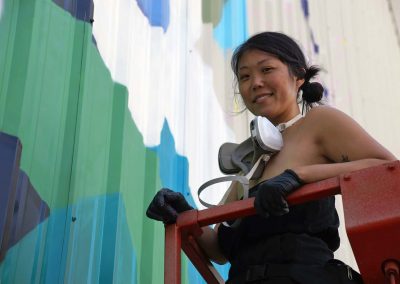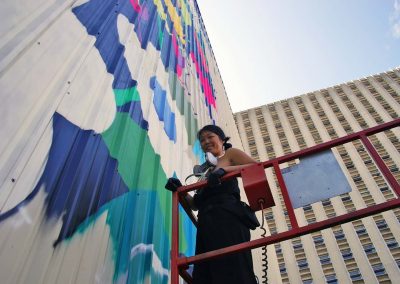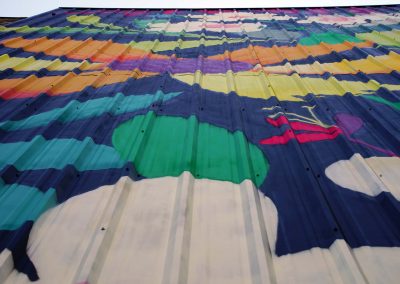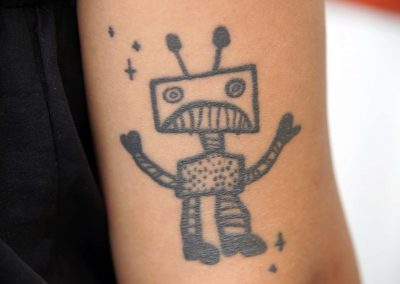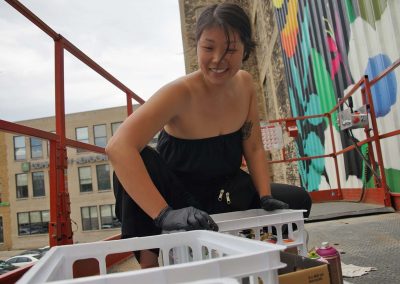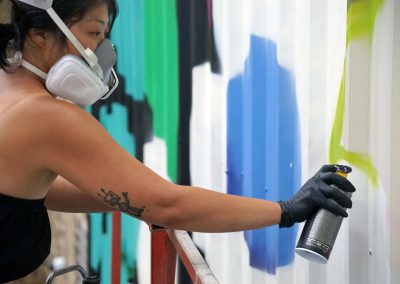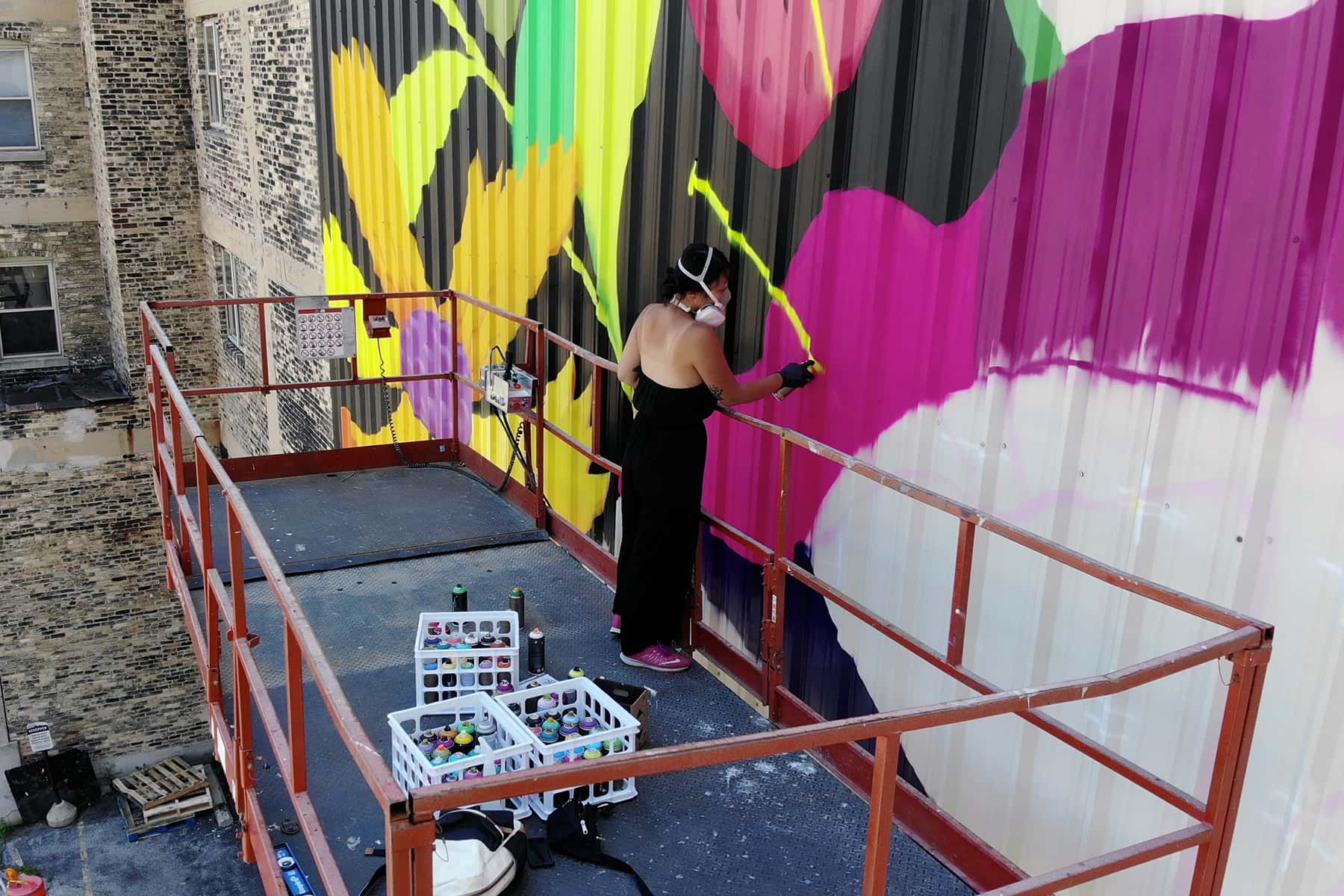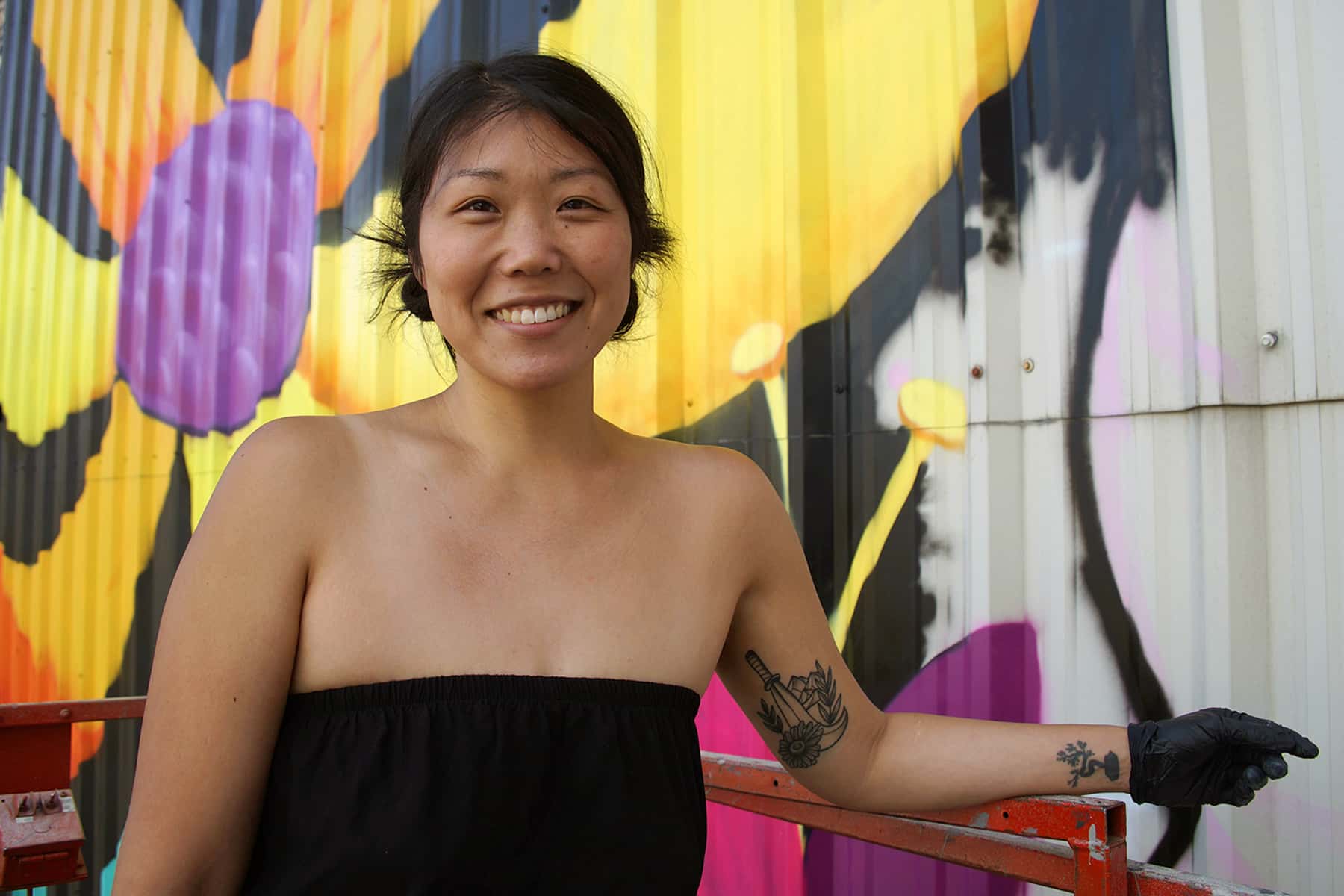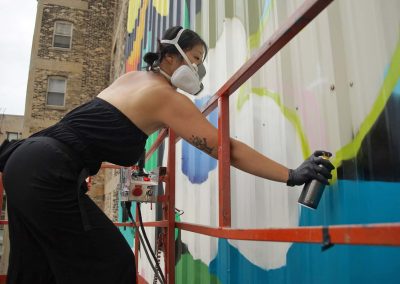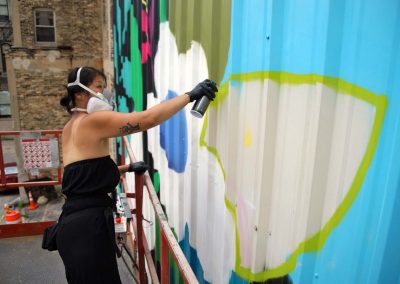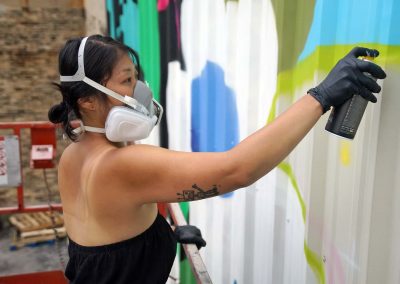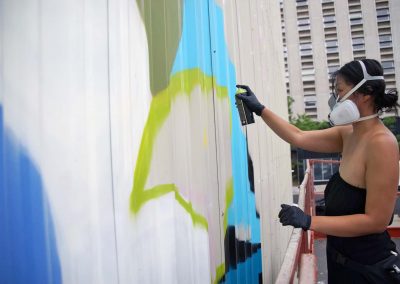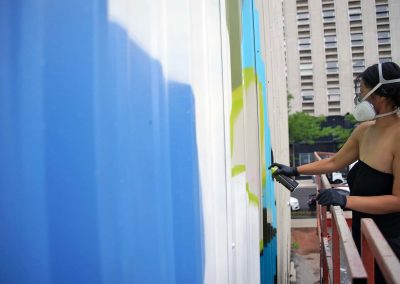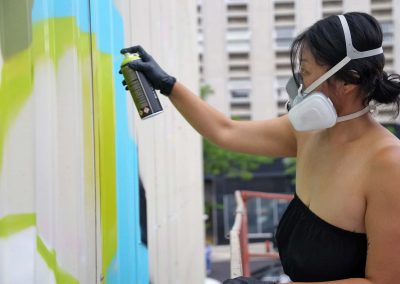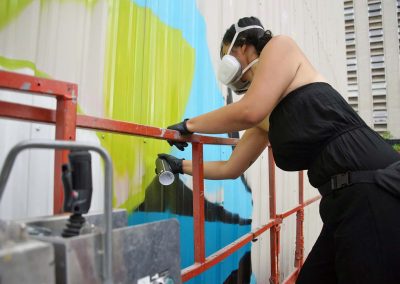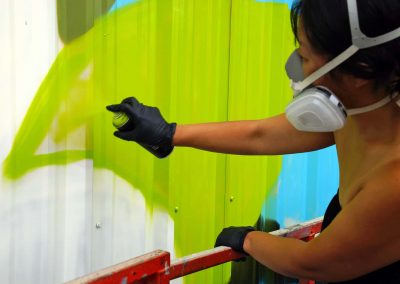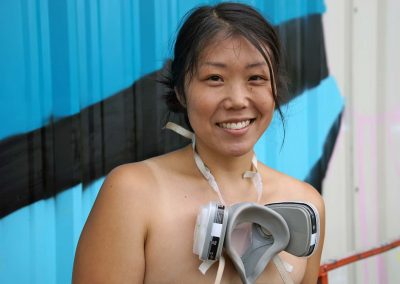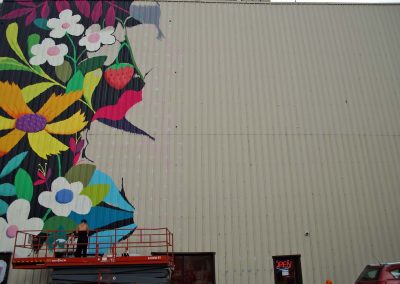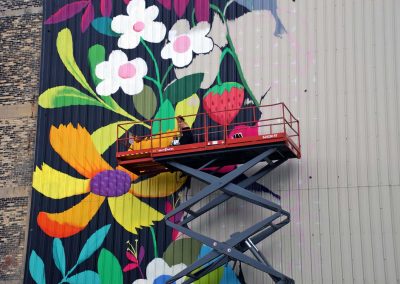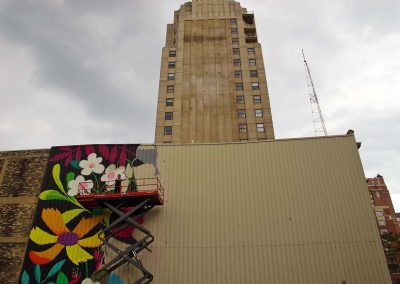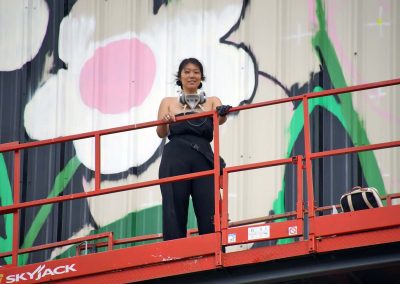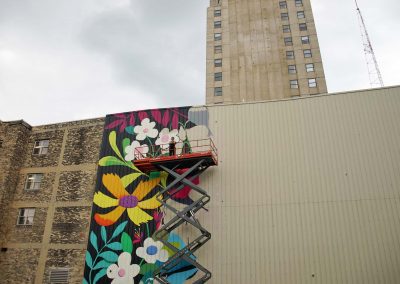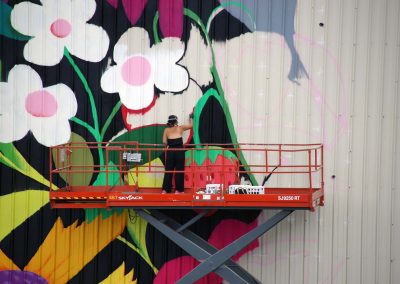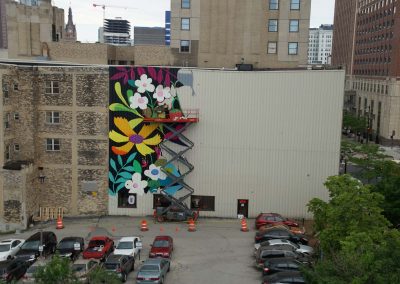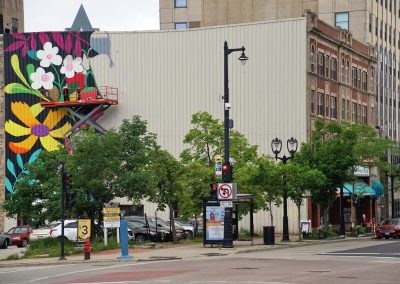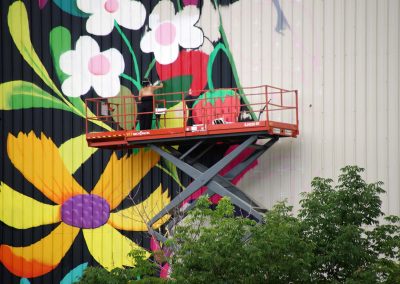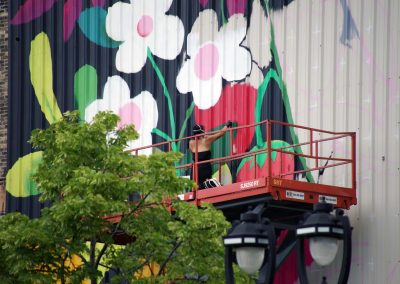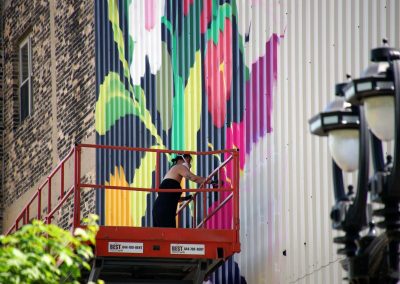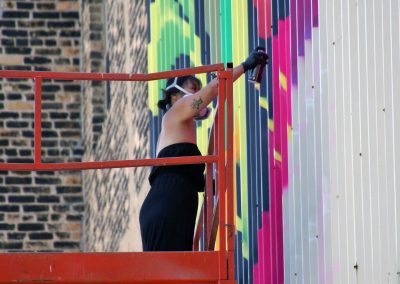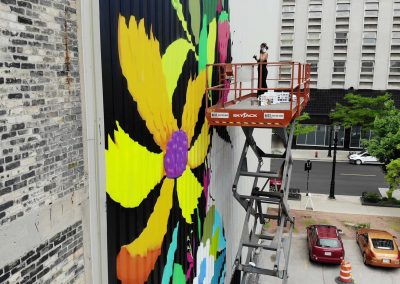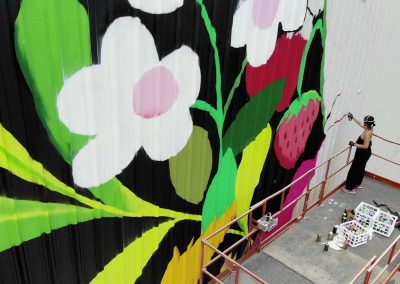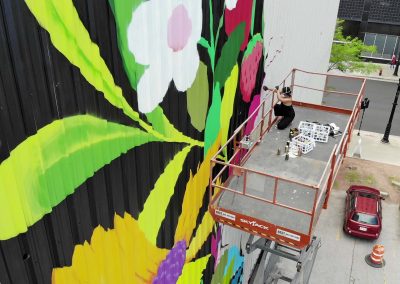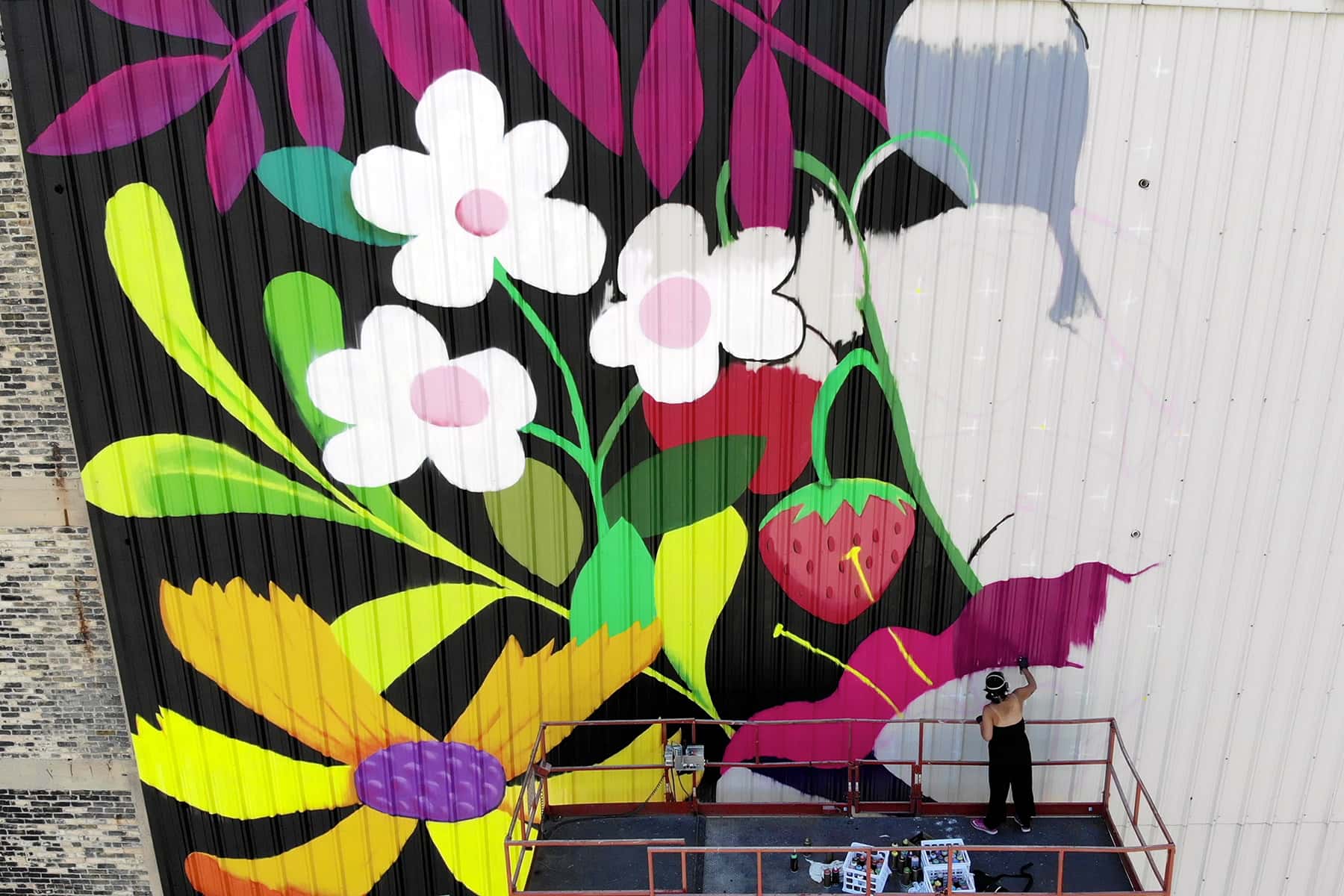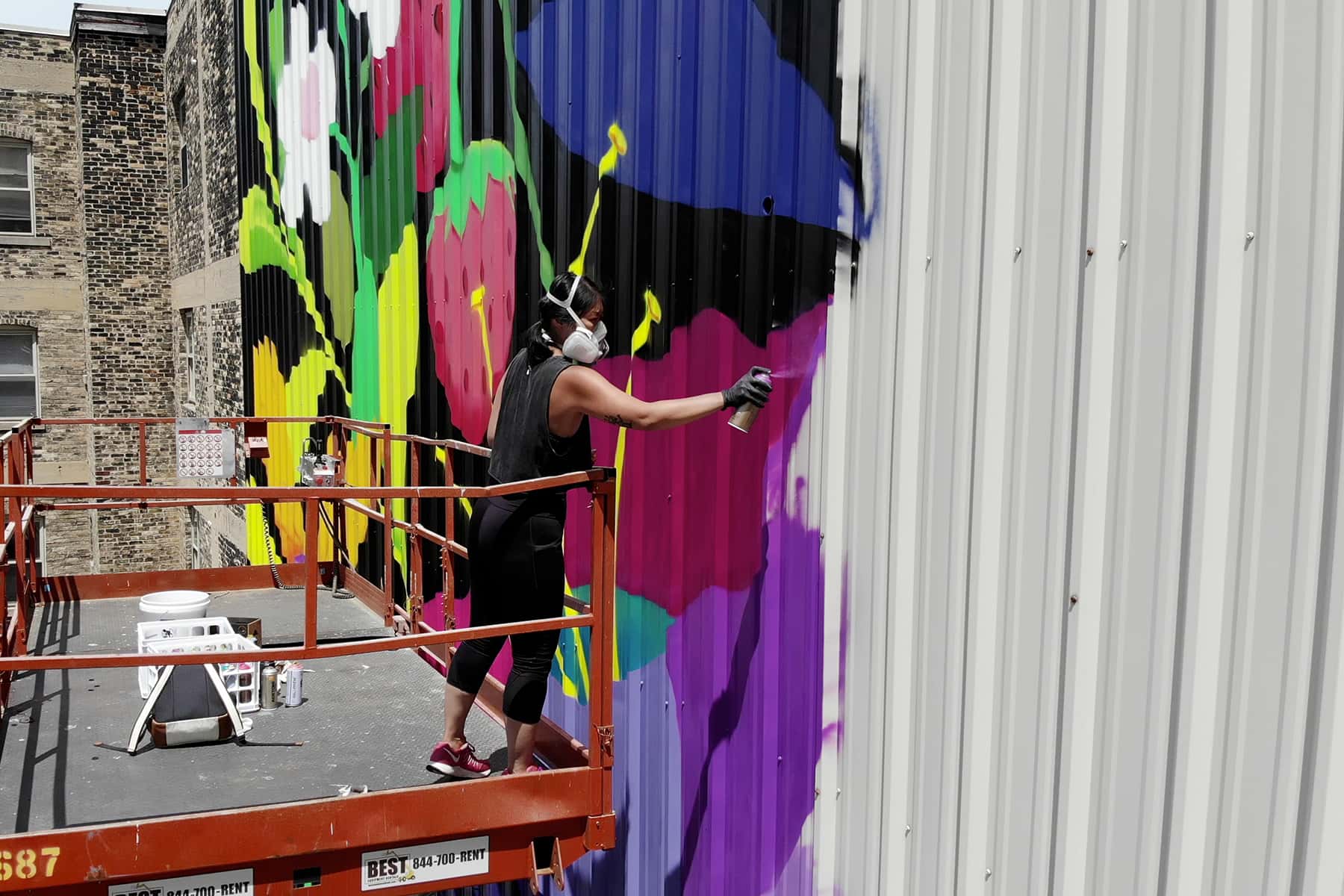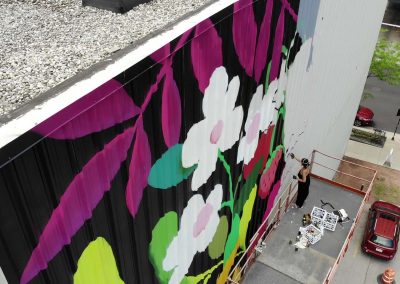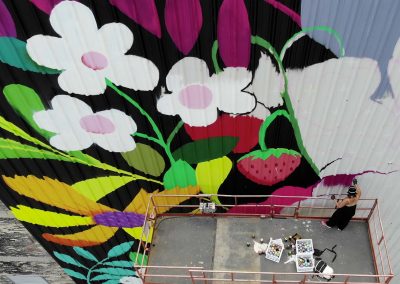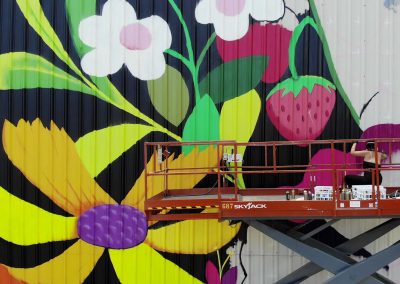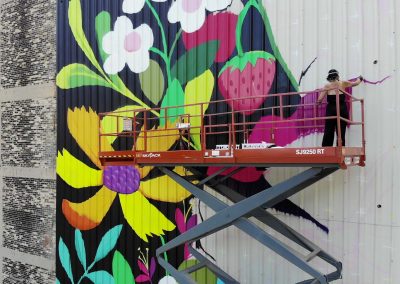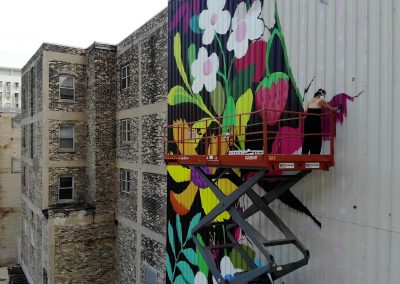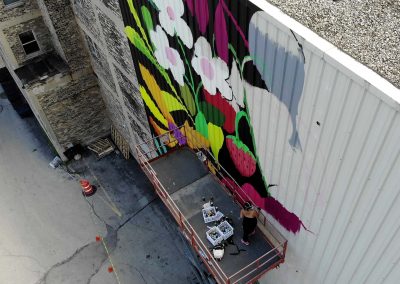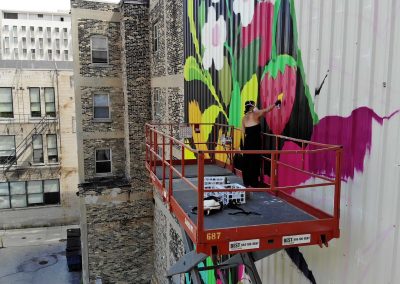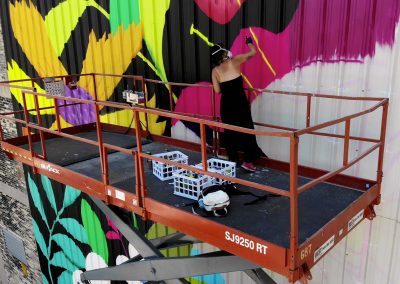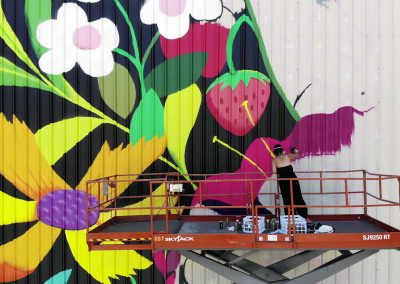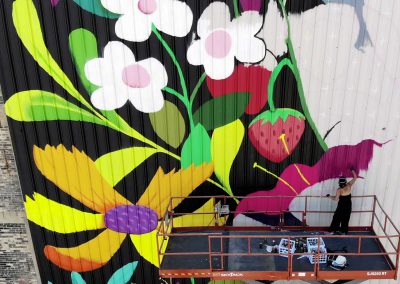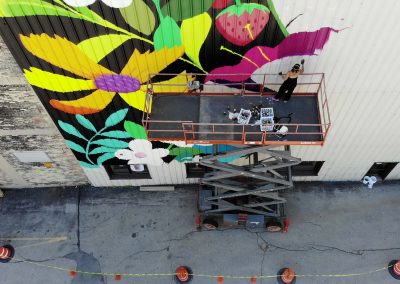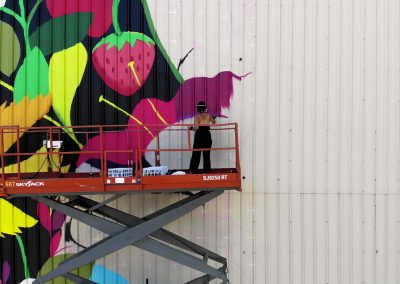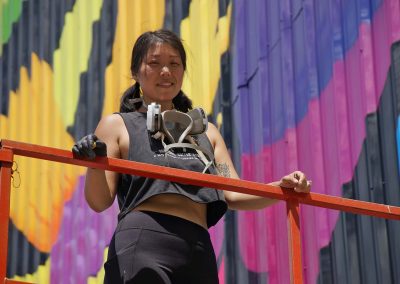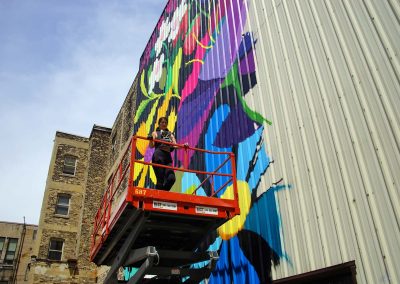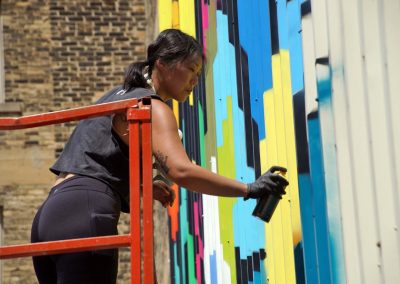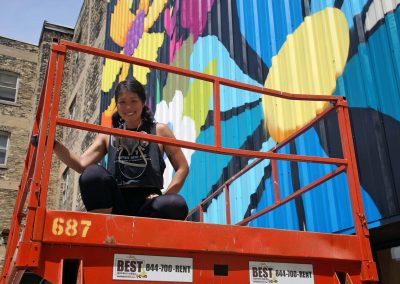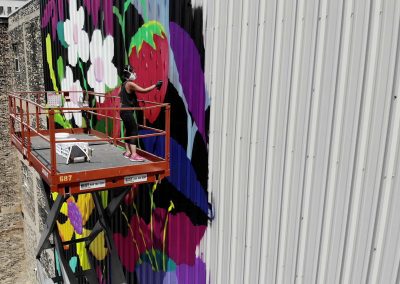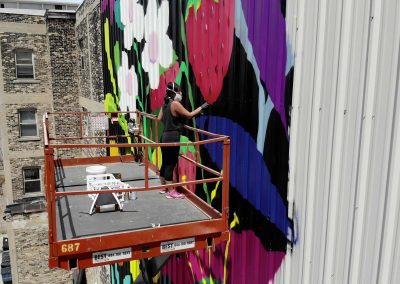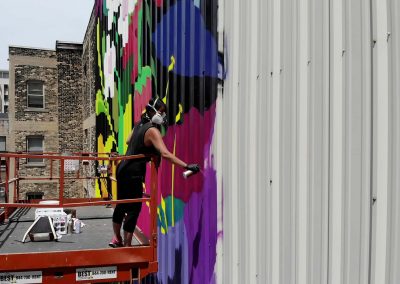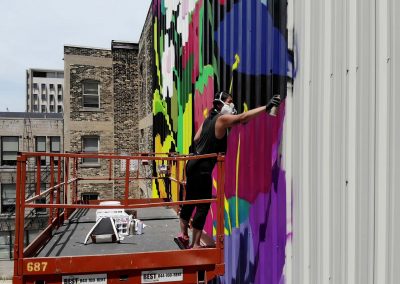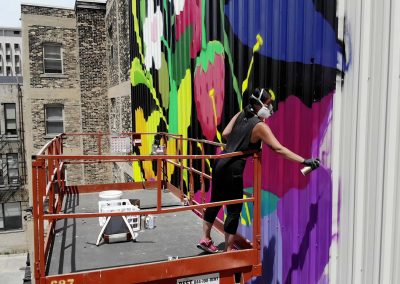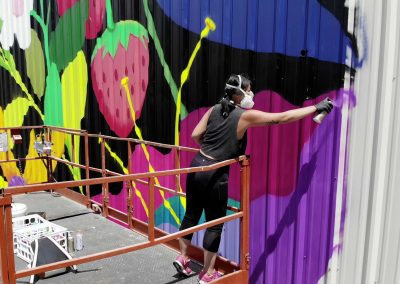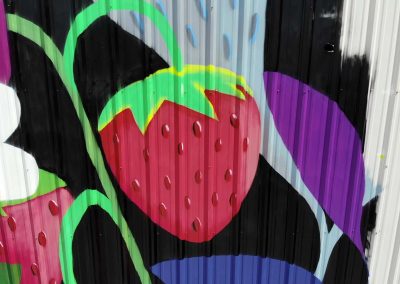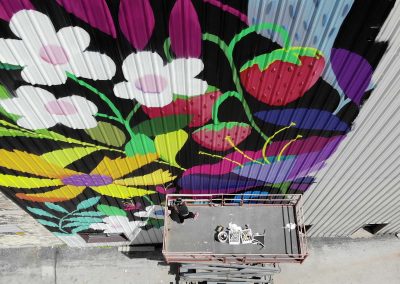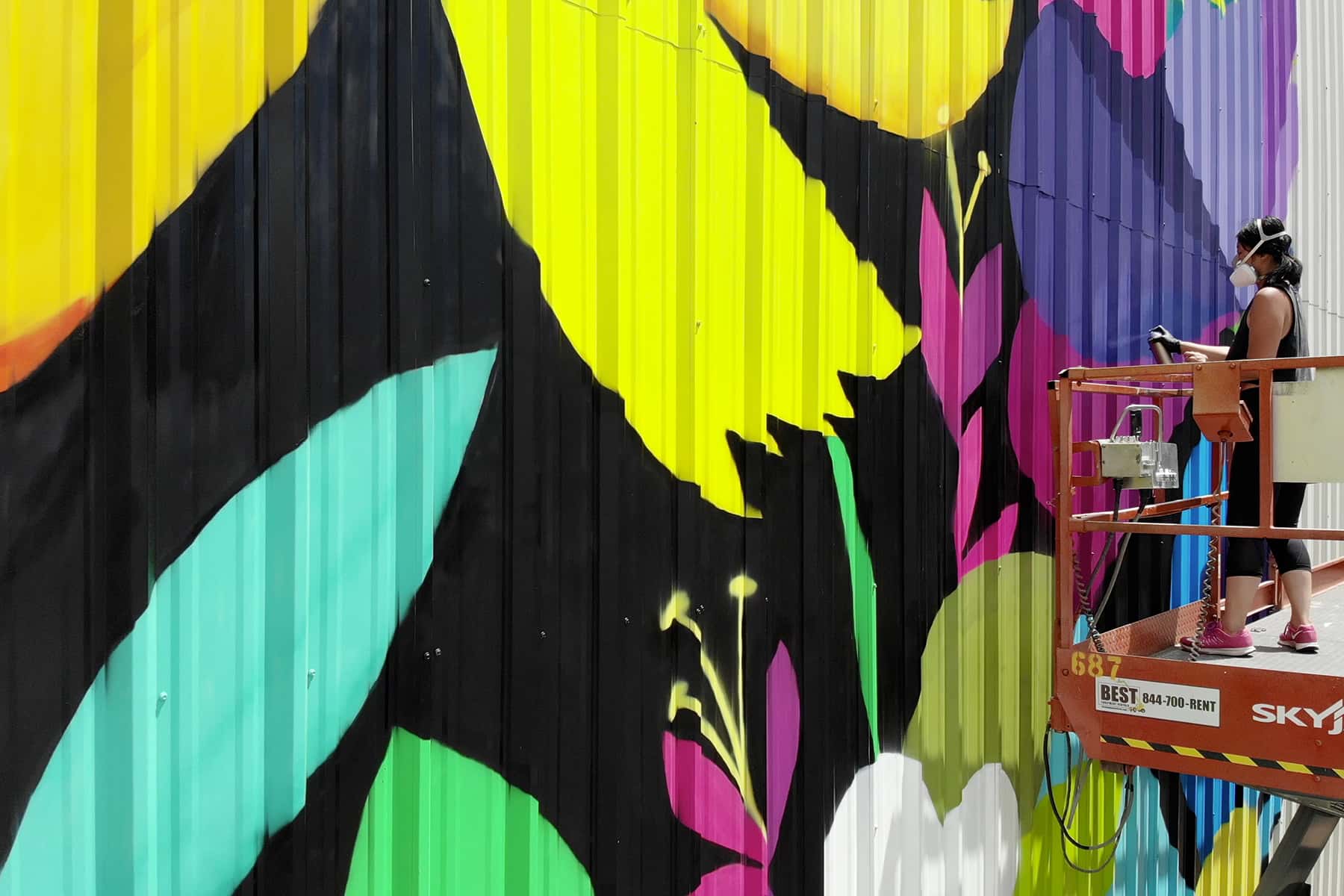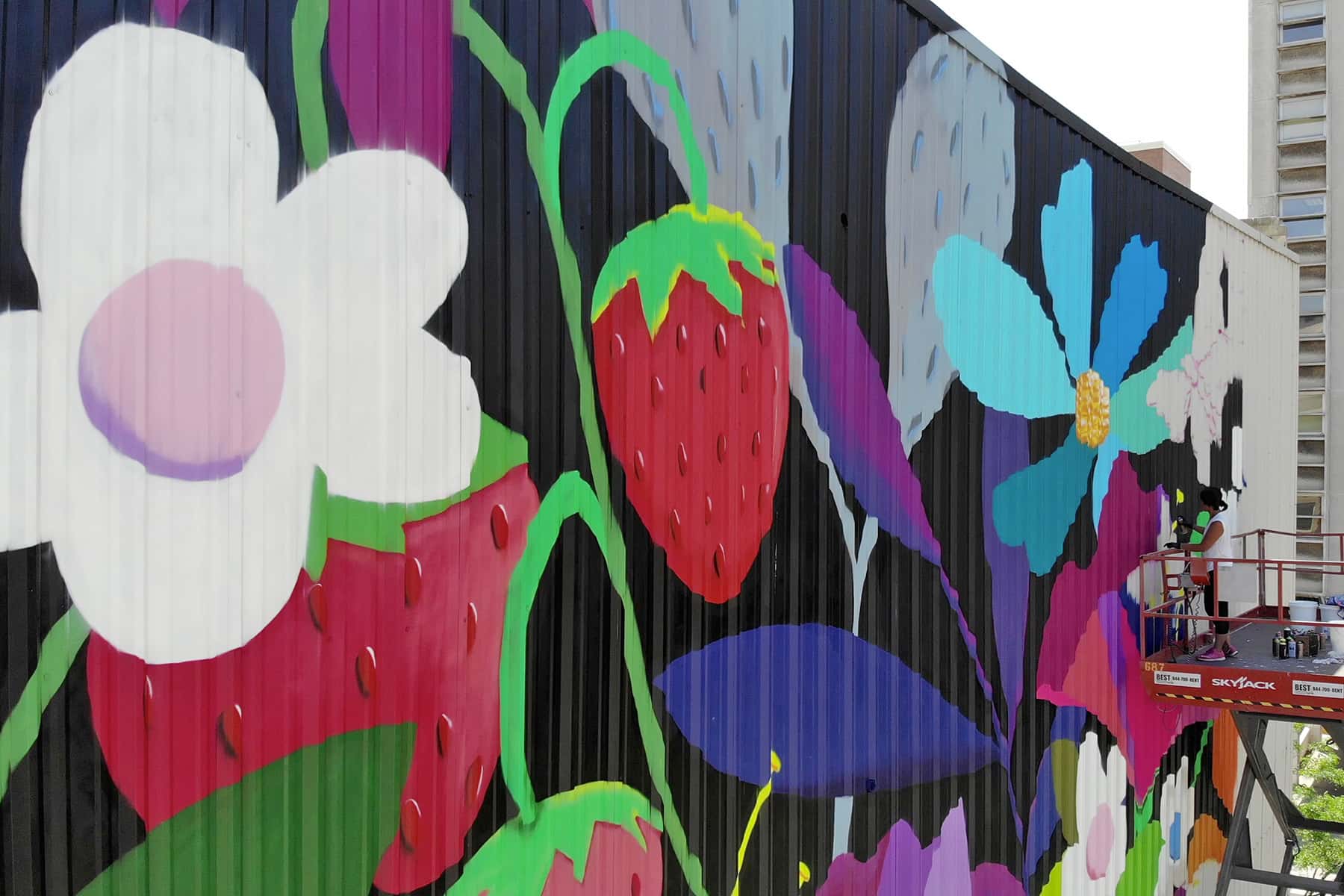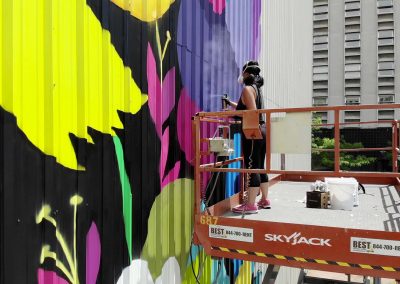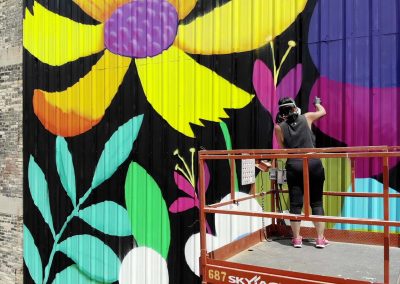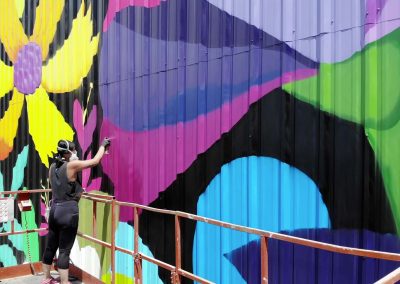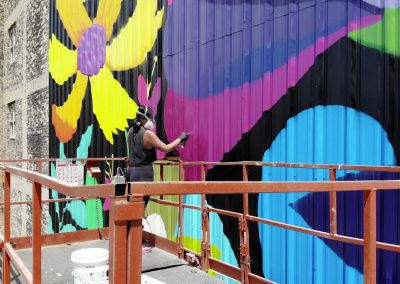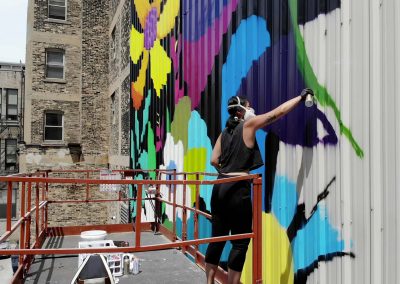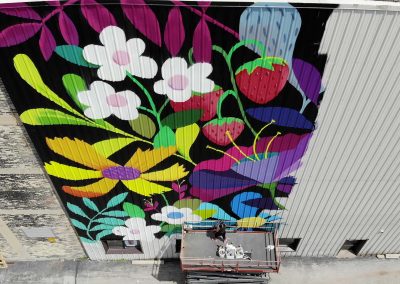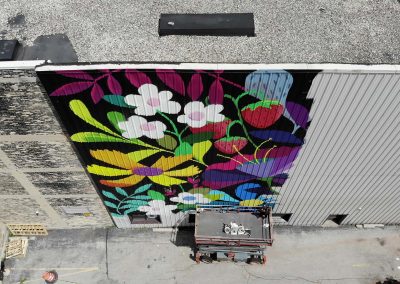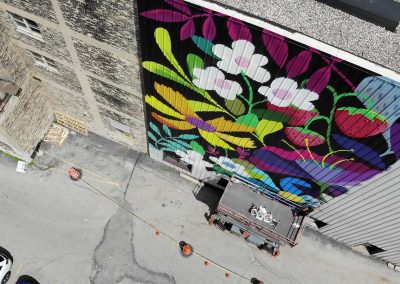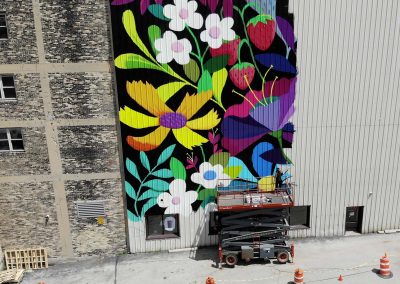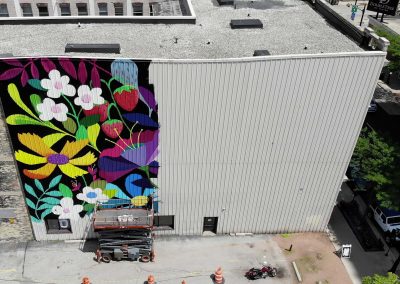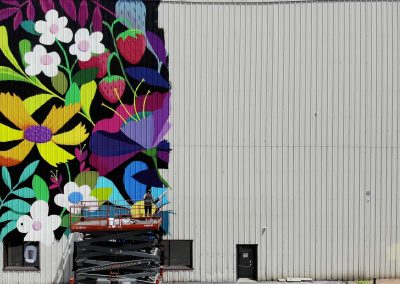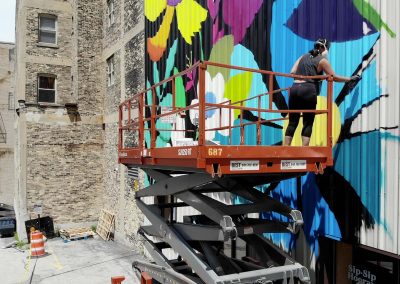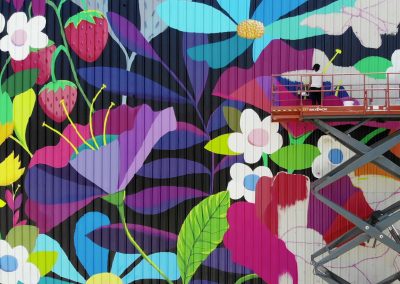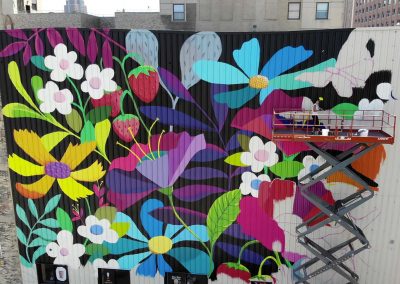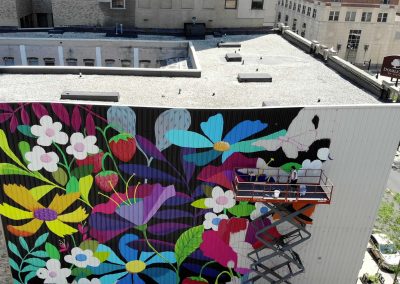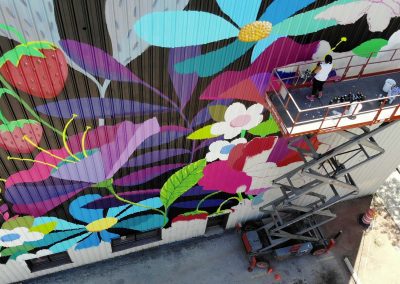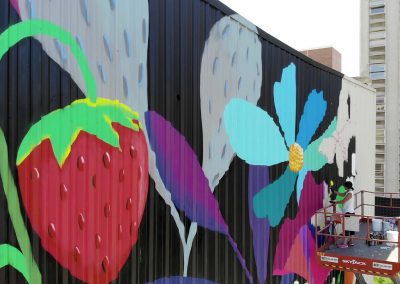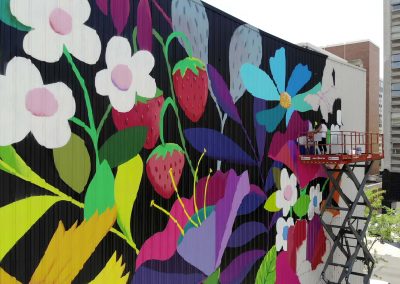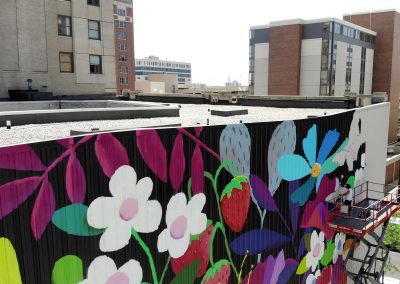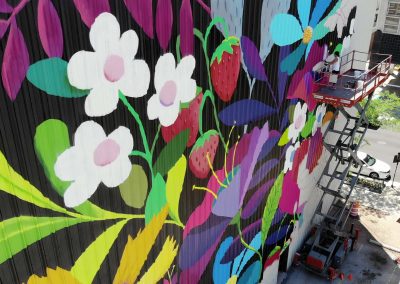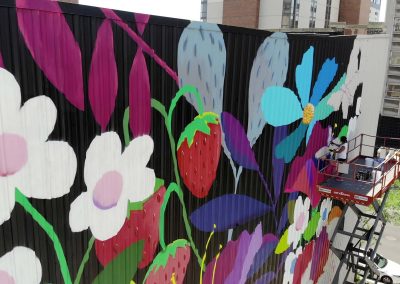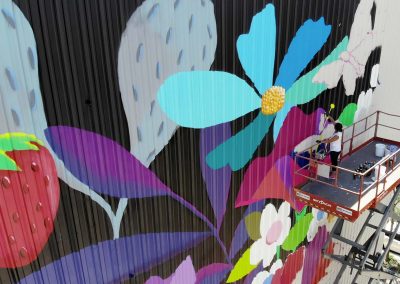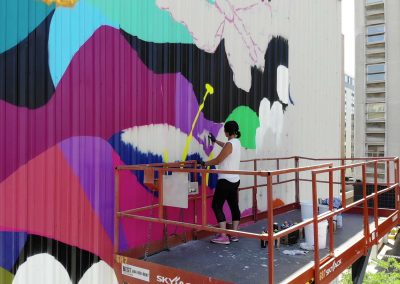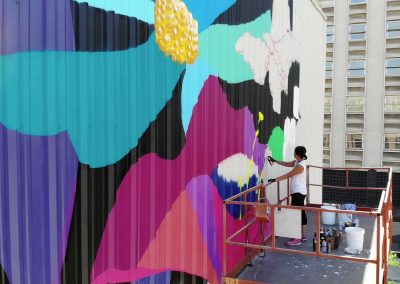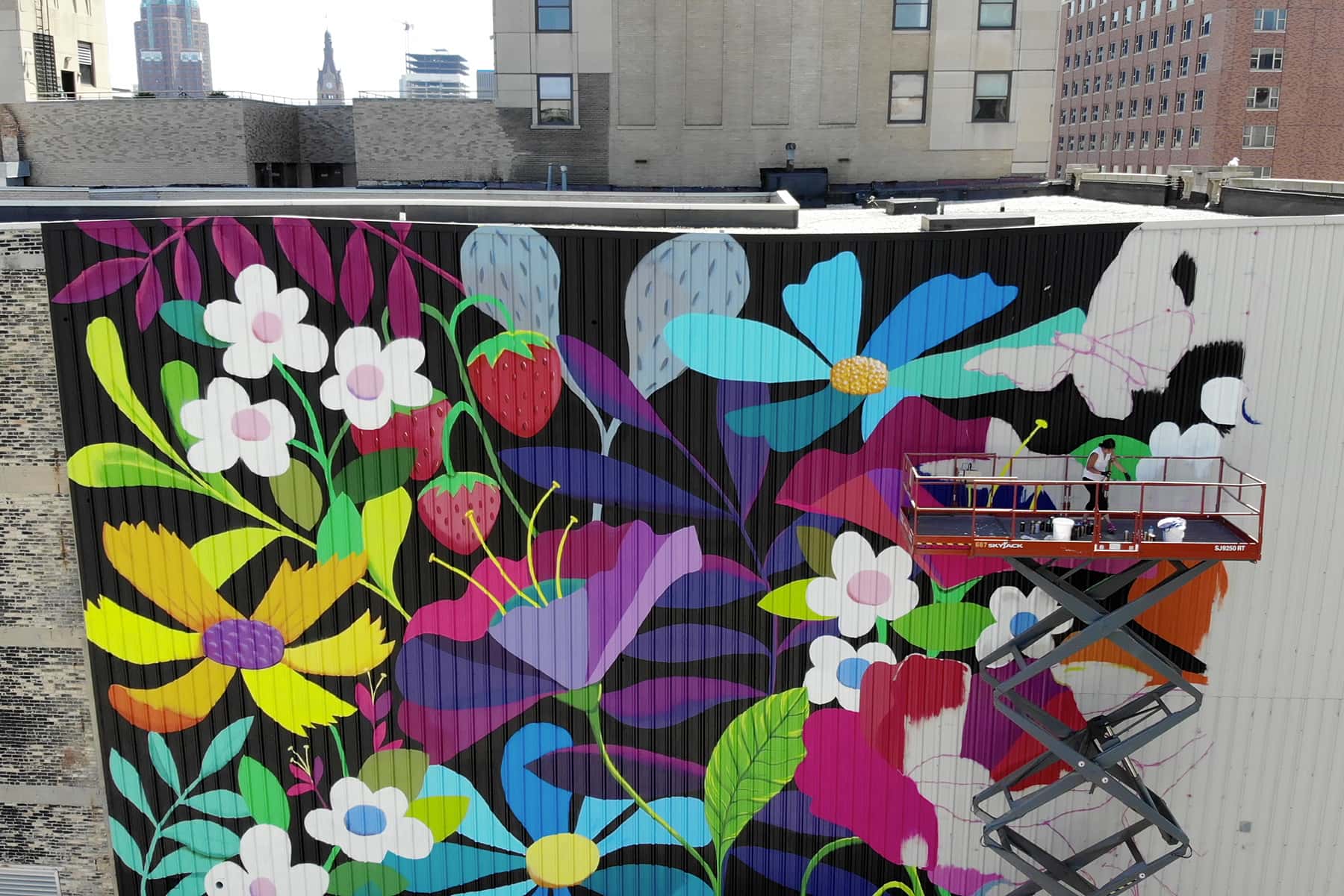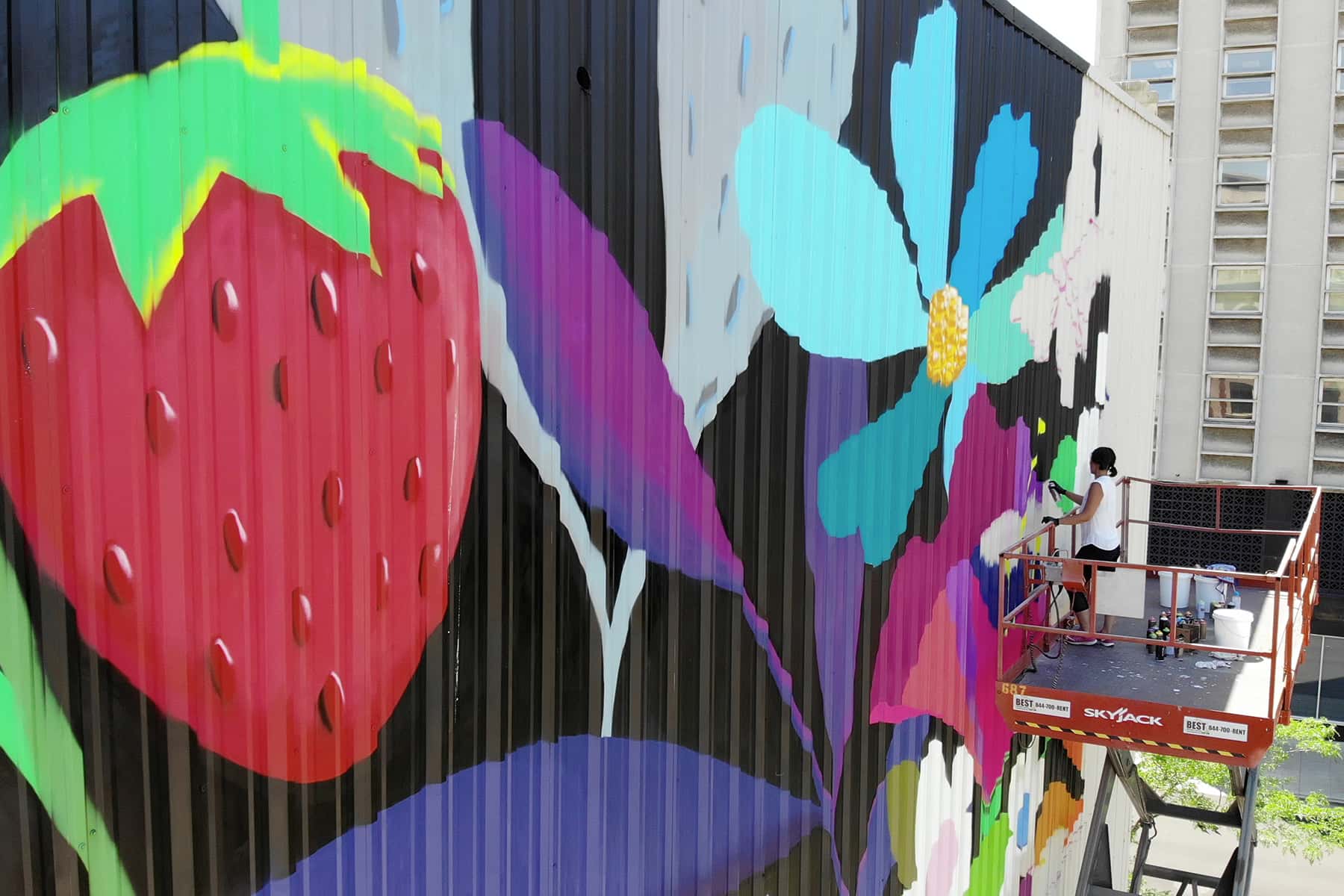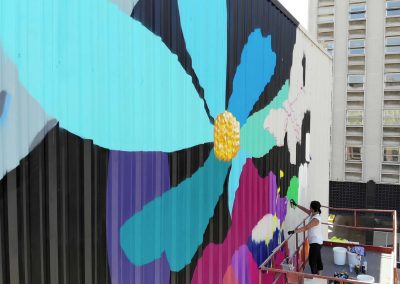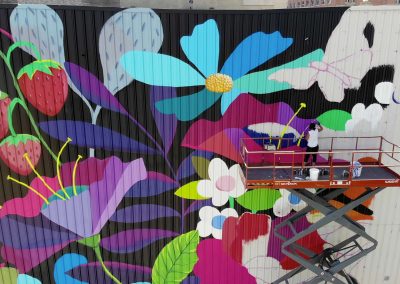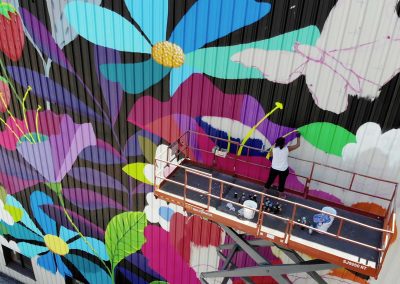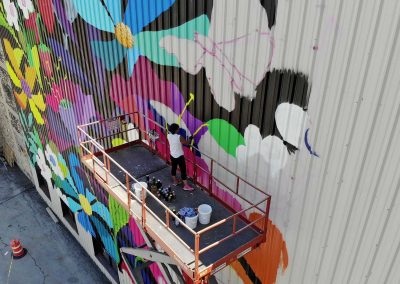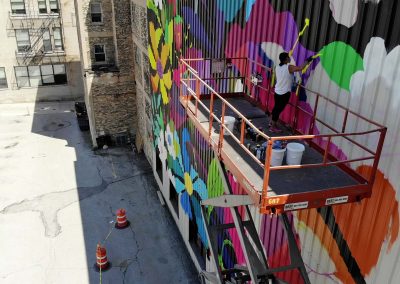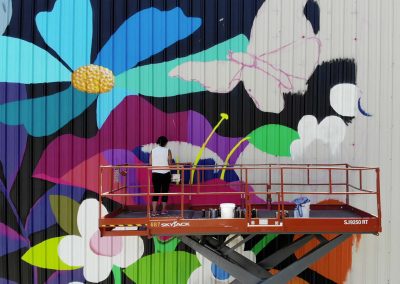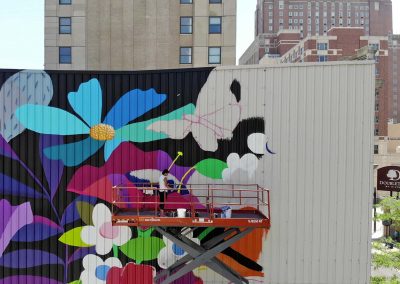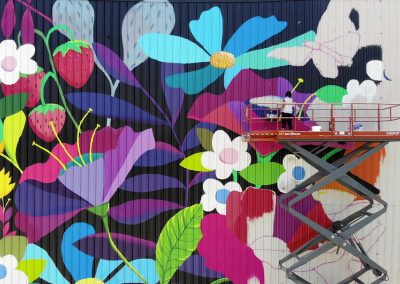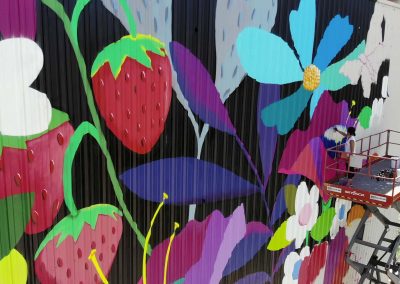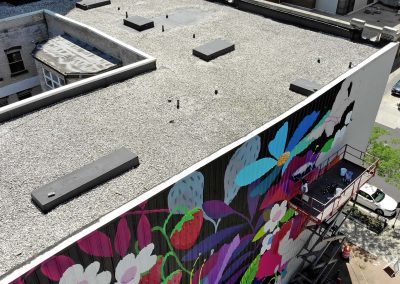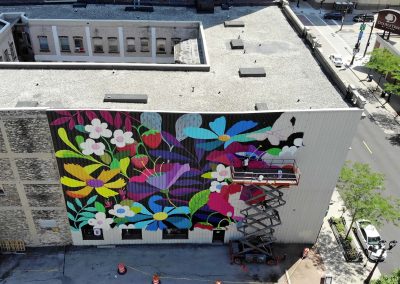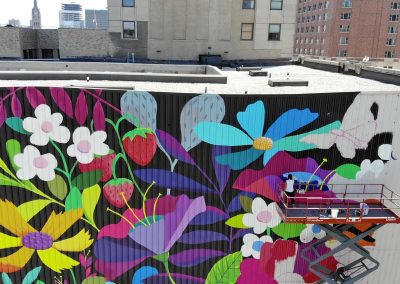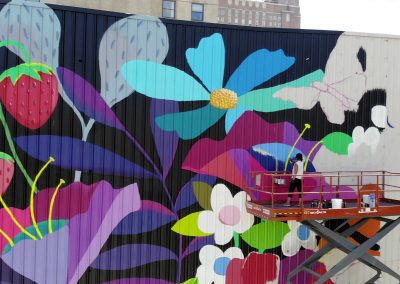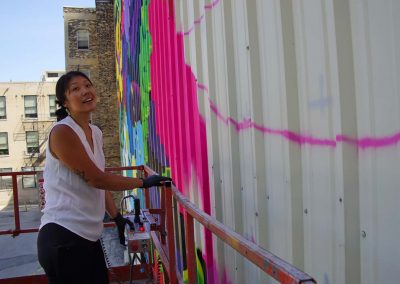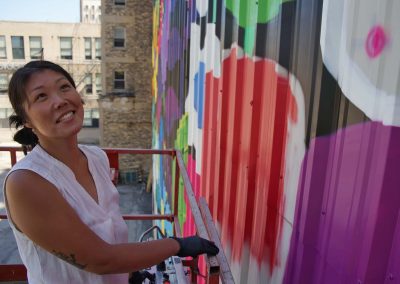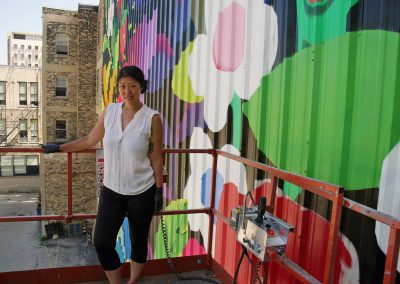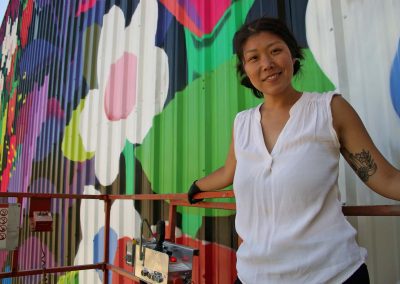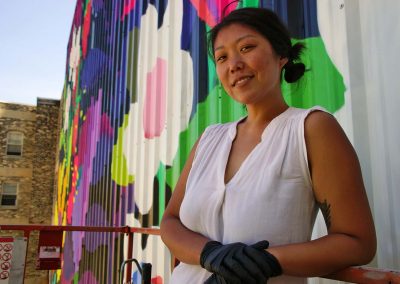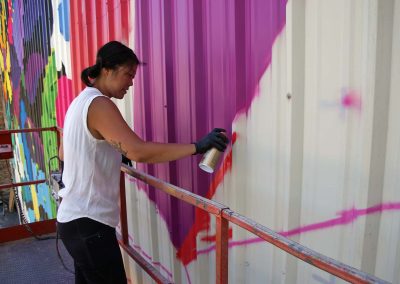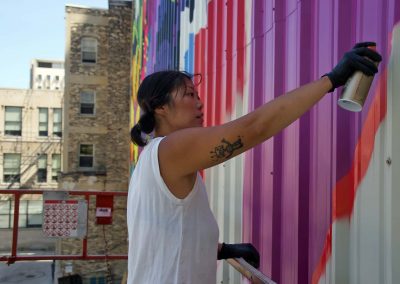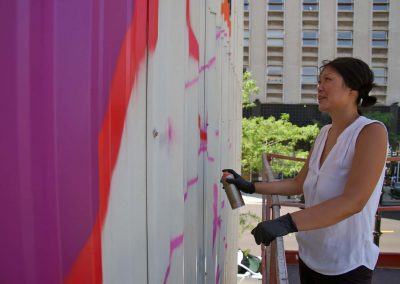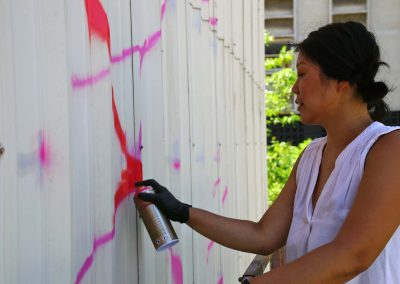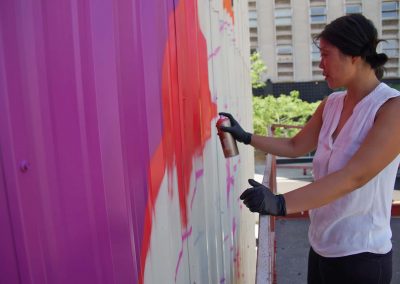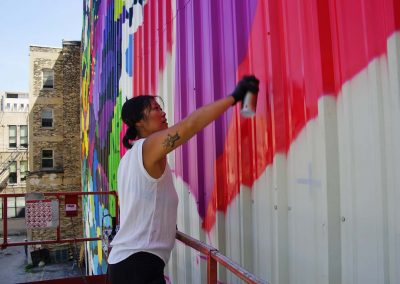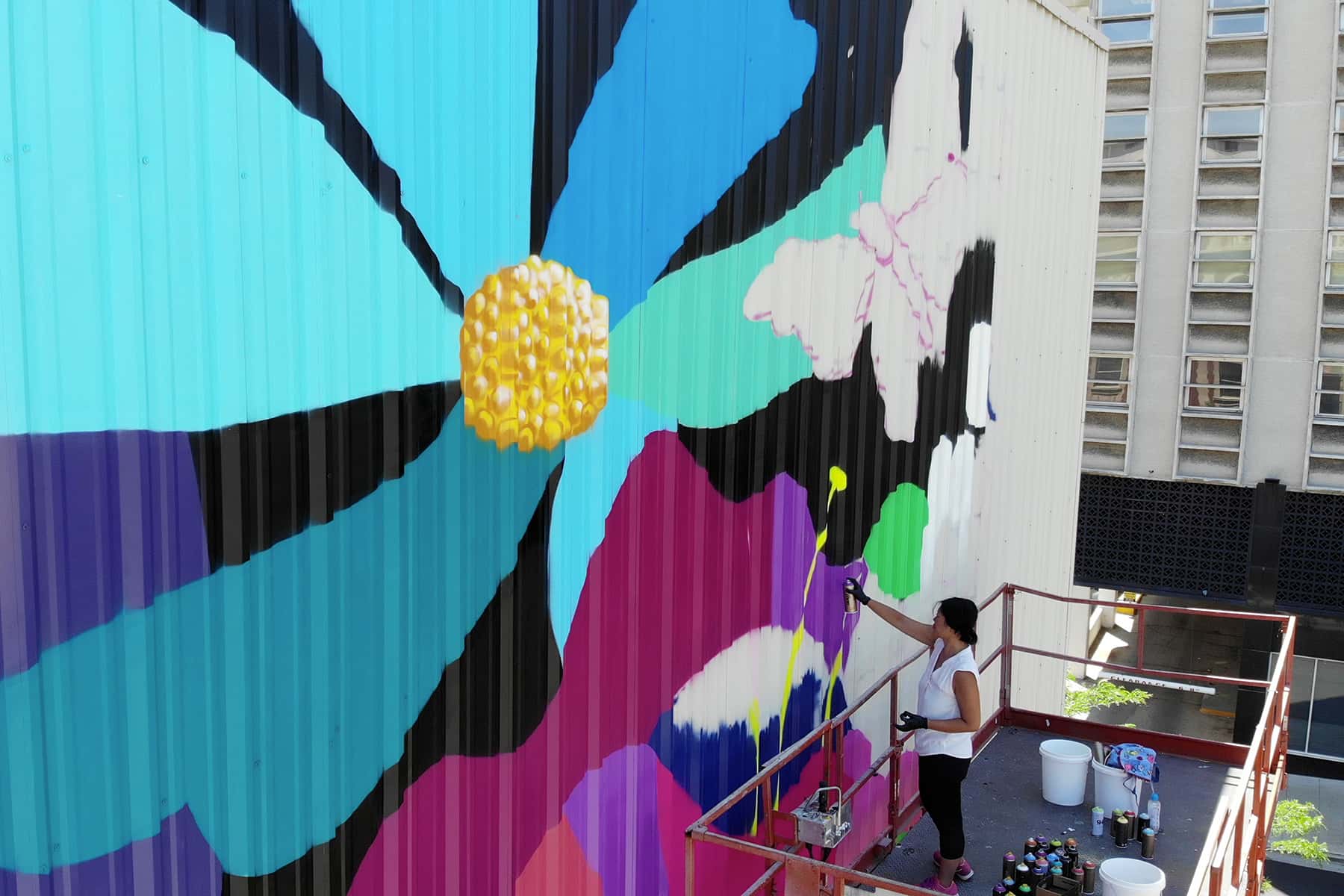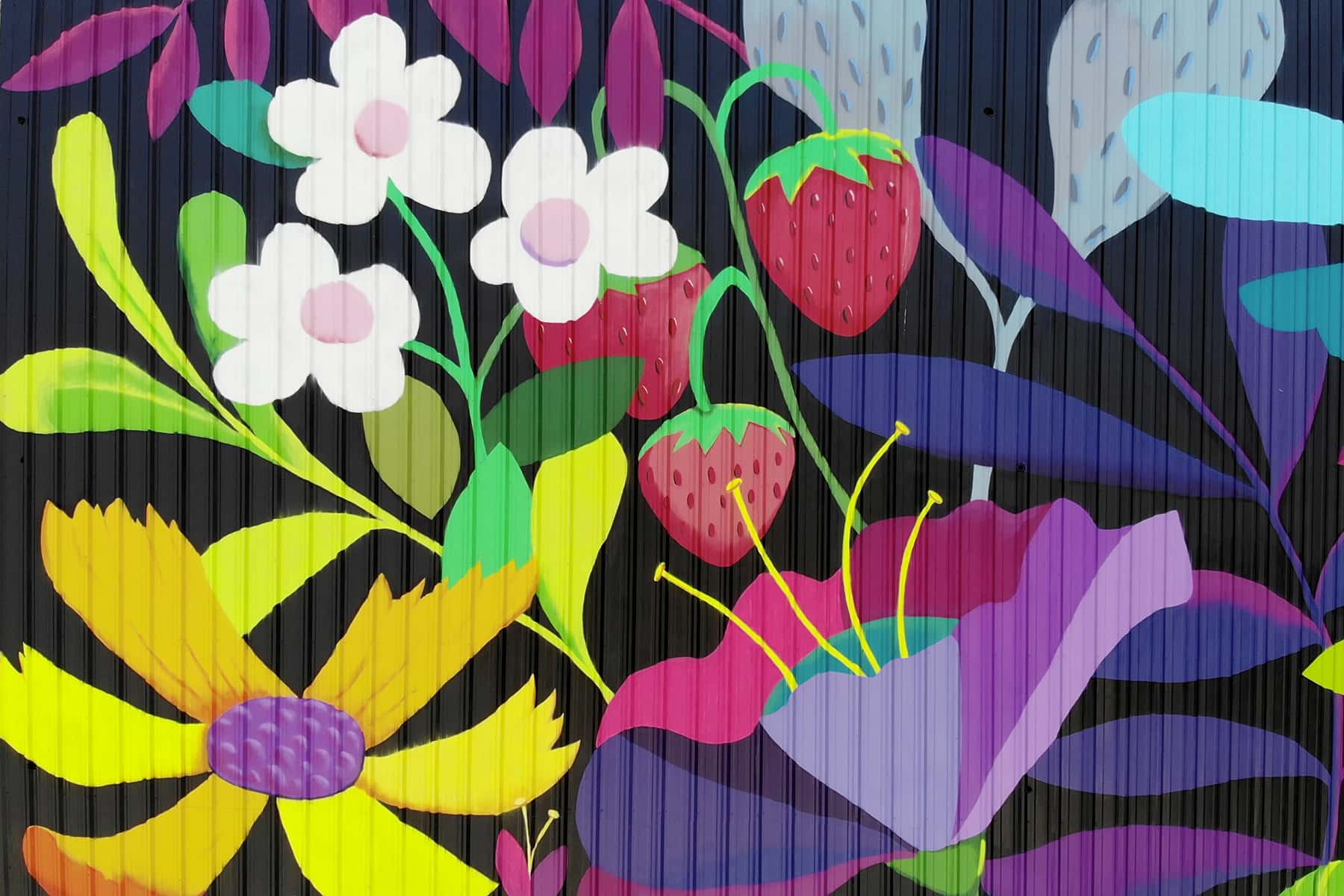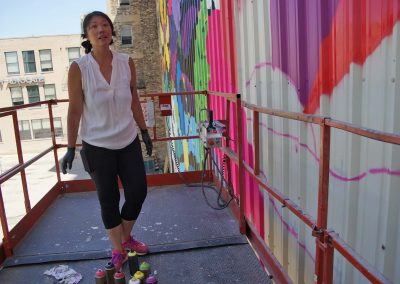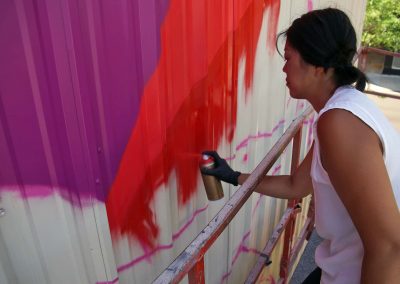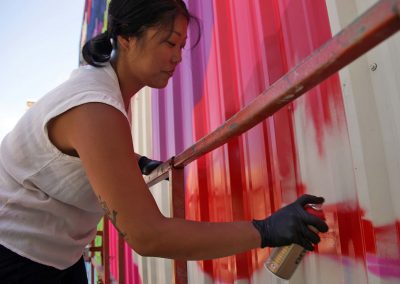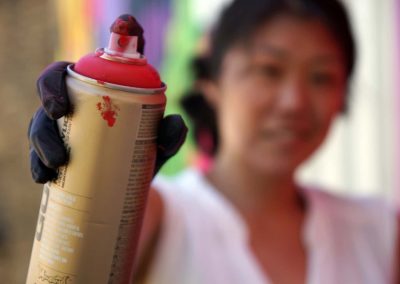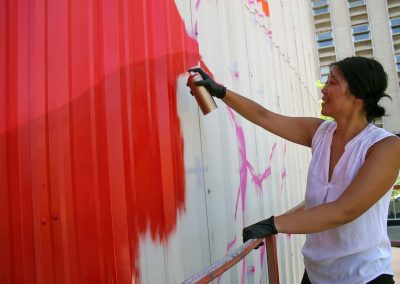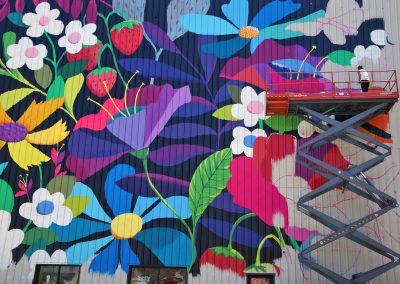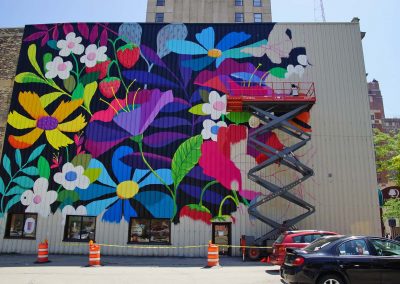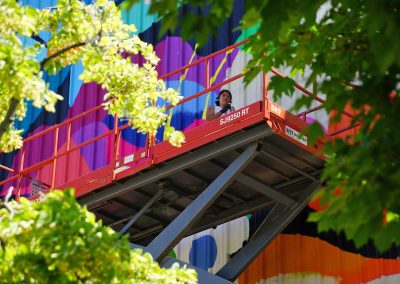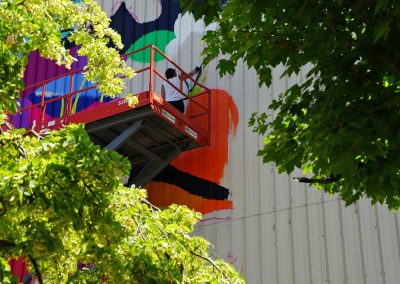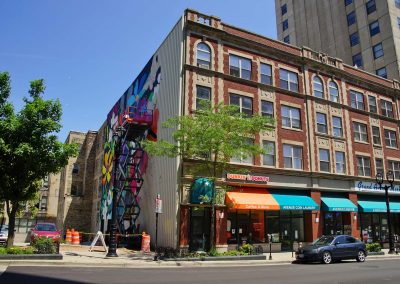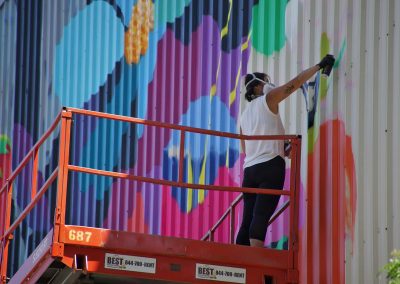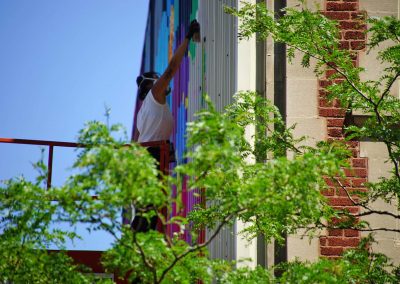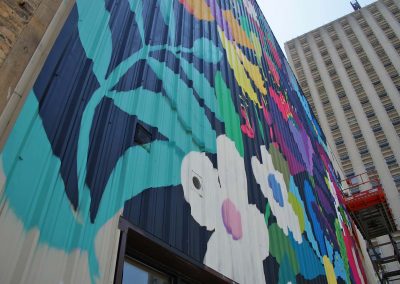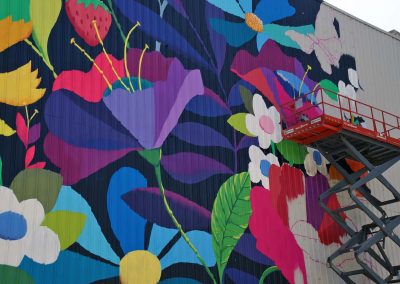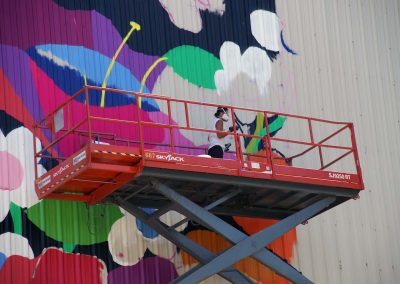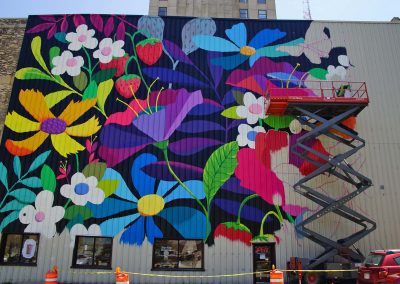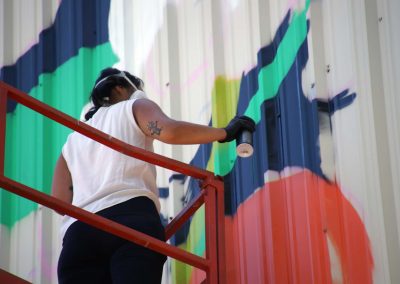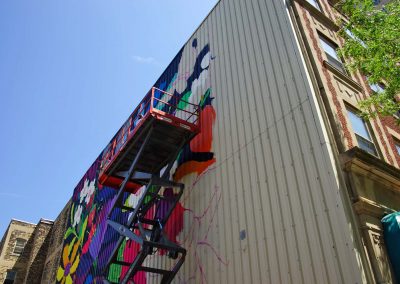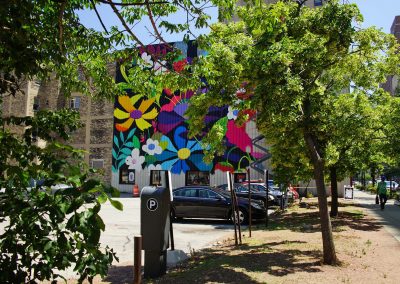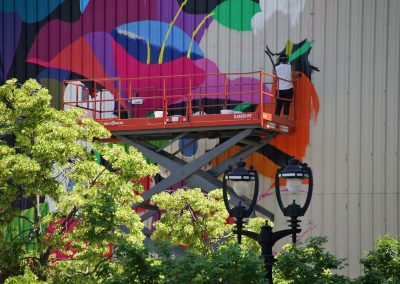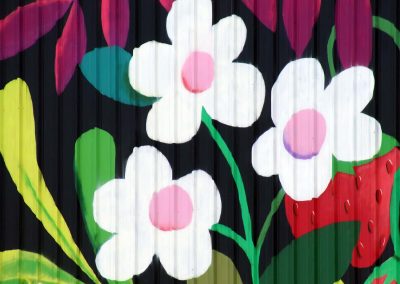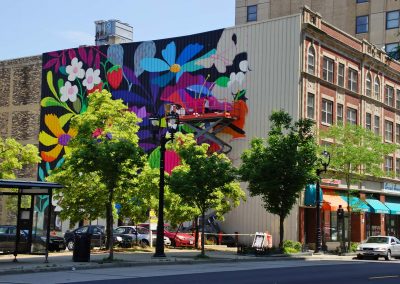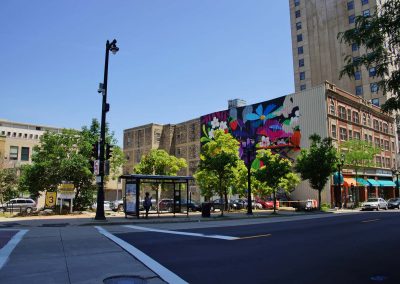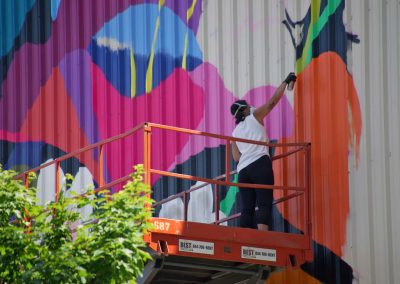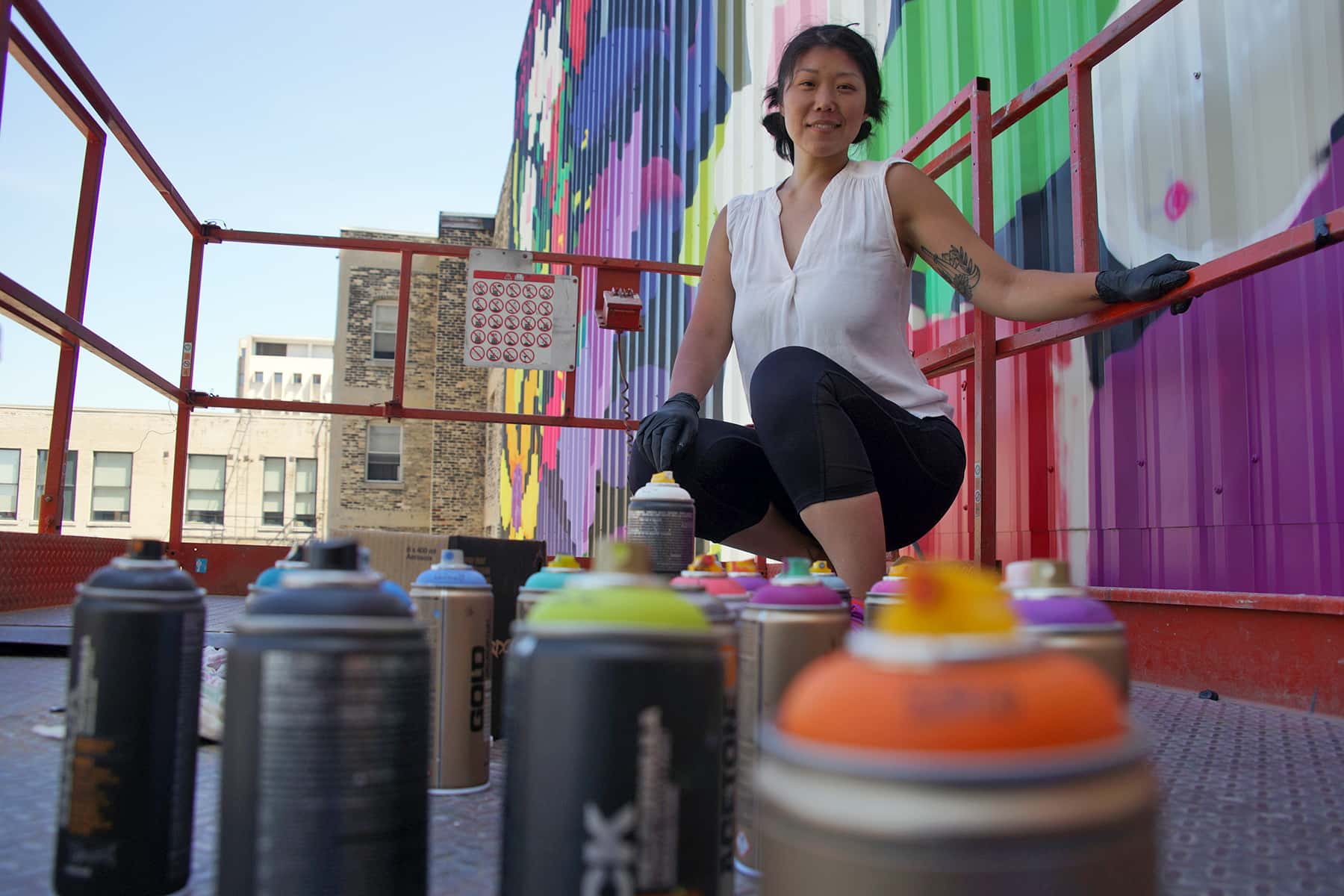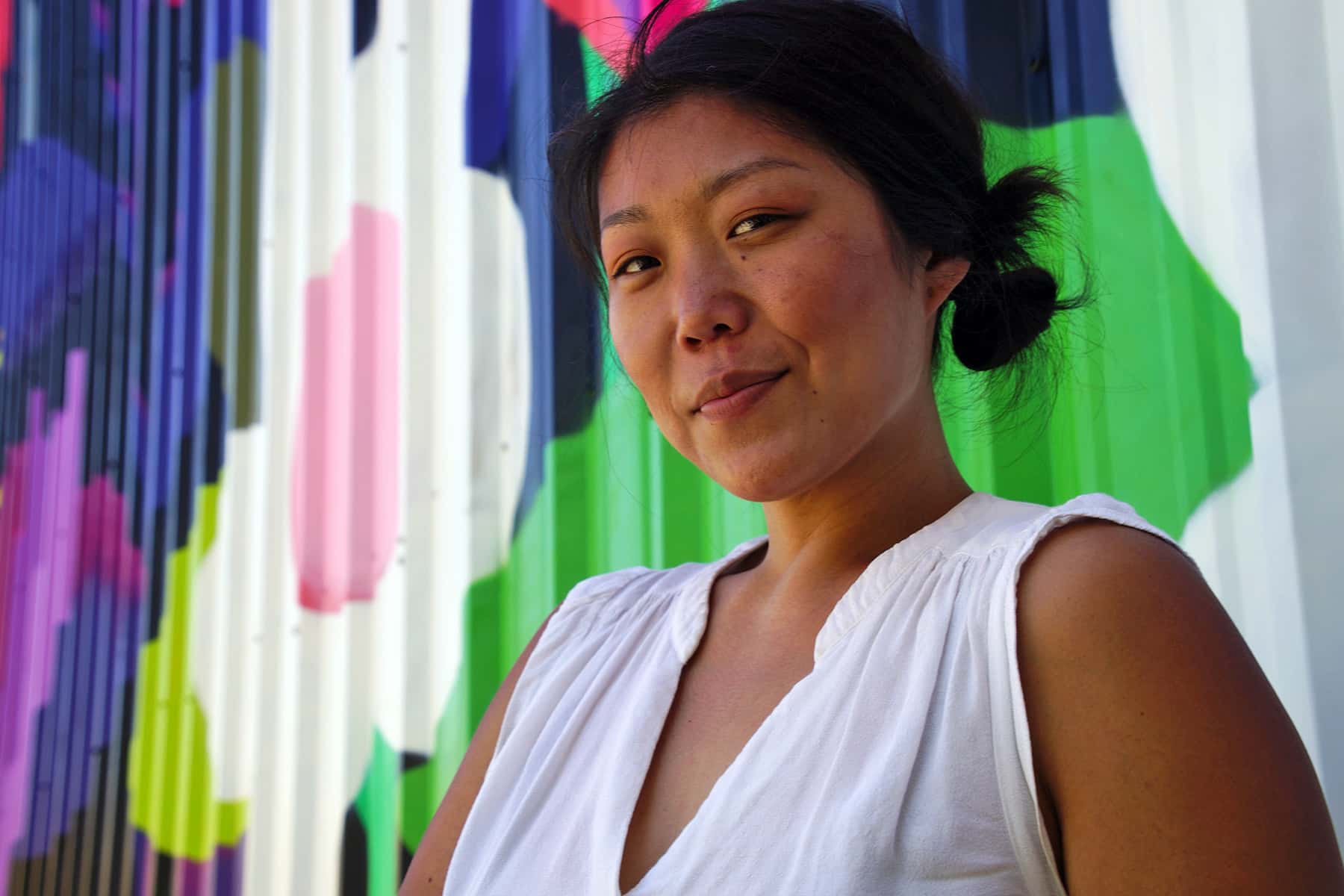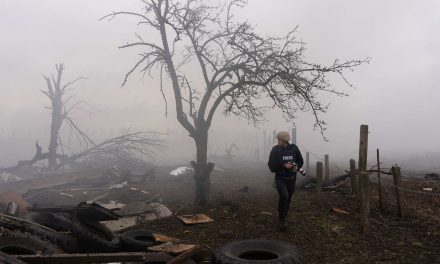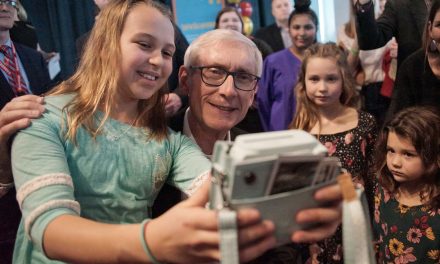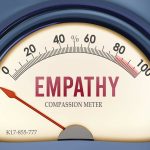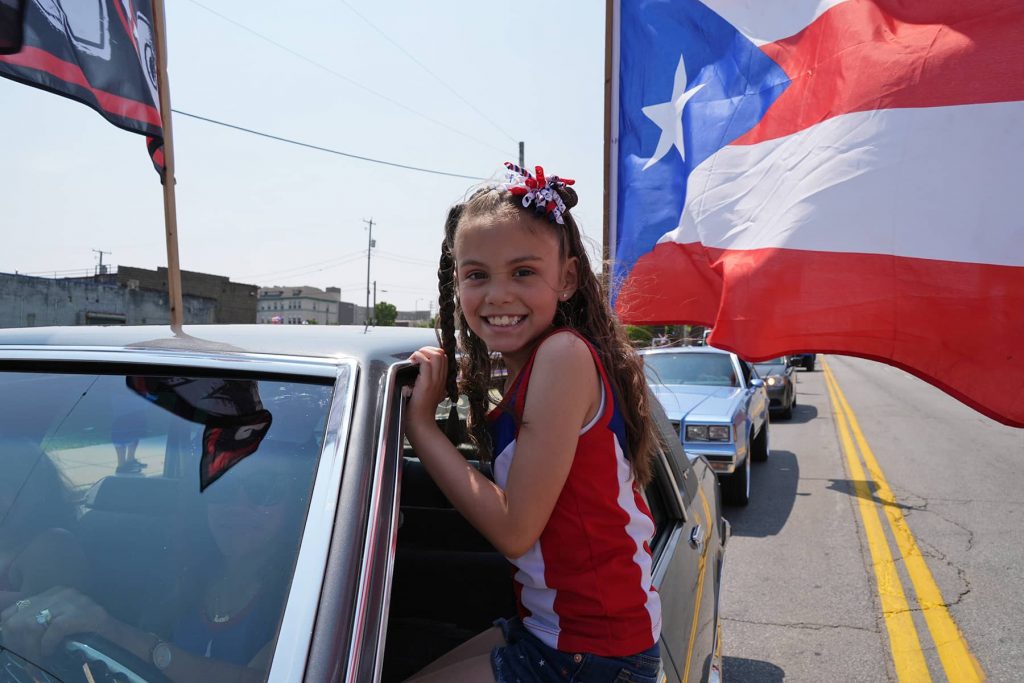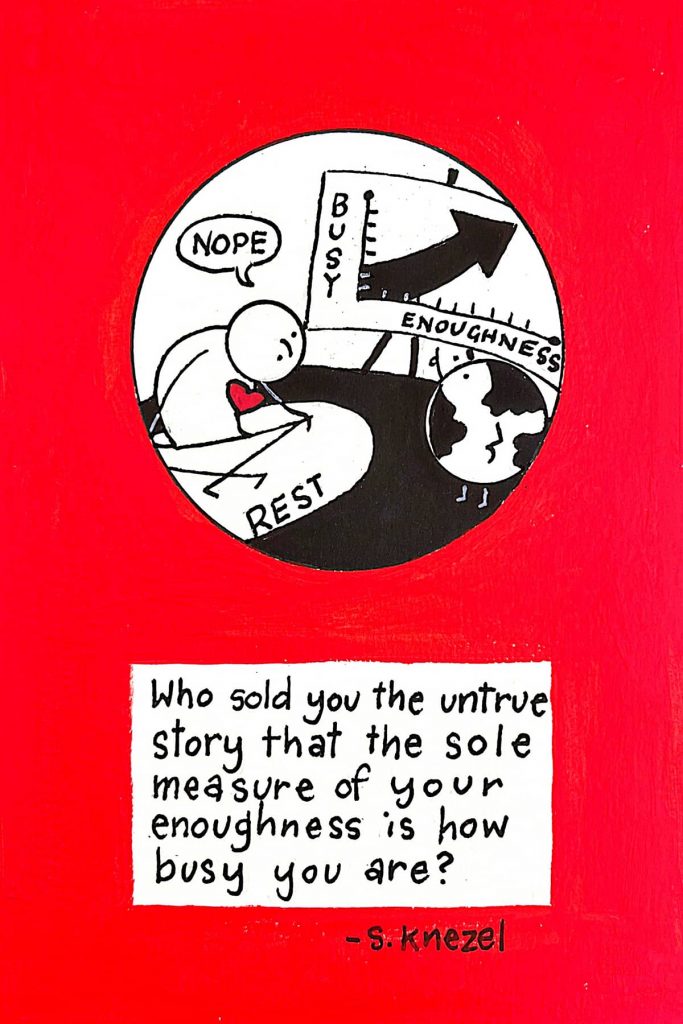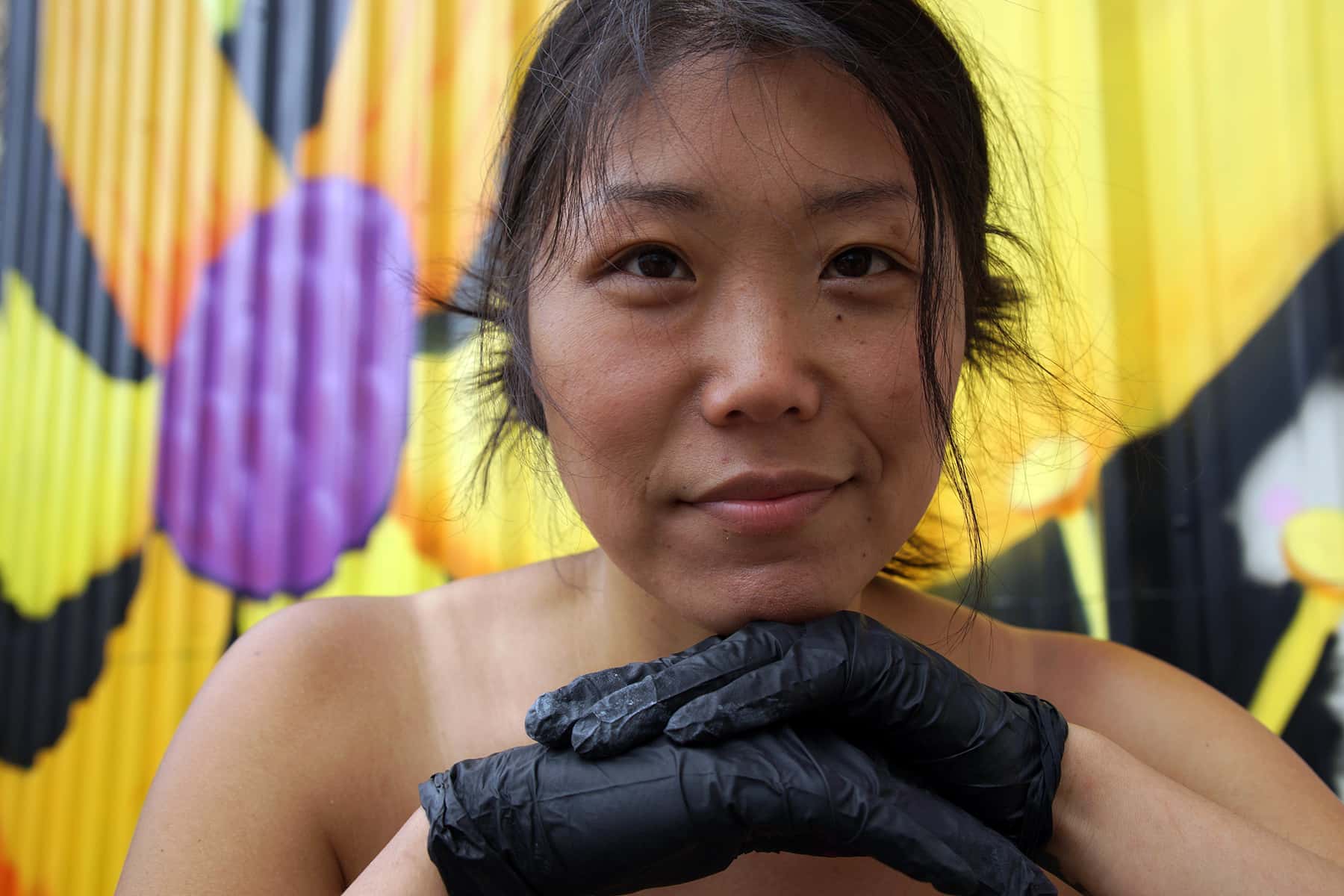
Adopted from Korea along with her brother, artist Emma Daisy Gertel learned from her life journey to overcome her struggles with acceptance, belonging, and identity in order to celebrate being different and value her uniqueness.
As the creative talent behind the Westown Gateway Mural project, Gertel’s art is focused on uplifting and changing public behaviors towards each other, to help impact Milwaukee communities in positive ways. The goal of her work is to share the power of art, and make it more accessible physically, socially, and emotionally. With her latest mural along West Wisconsin Avenue, Gertel wants to leave a lasting message about transformative spaces as a reminder to celebrate our diversity rather than fear it.
Q&A with Emma Daisy Gertel
Milwaukee Independent: Who had the biggest impact on your childhood, and do you still see that influence on your life today?
Emma Daisy Gertel: Not surprisingly, my parents had a huge impact on the person I am today. They strongly influenced my values, but beyond that, my parents have always been very proud of my brother and I and our accomplishments in life, no matter the size. Growing up, they were encouraging, but not coddling. They share their genuine amazement for the things that I do and create — art or otherwise. This has always affected my sense of self and my confidence, which in many ways has provided me with the emotional support to attempt a career in art.
Milwaukee Independent: What is the most memorable experience from your youth, growing up around the Milwaukee area.
Emma Daisy Gertel: No specific event really stands out in my memory. But overall, growing up in a very homogenized – mostly white – community in Waukesha, the memory of that experience was a resounding feeling of being different, with the desire and longing to fit in. Once, when I was little, I went to a gymnastics class and the other kids asked me why my face was so flat. I’m not sure I even understood in that moment why it felt so hurtful, but I never told my mom. I just begged her to let me quit gymnastics, but as a result I regret never learning how to do a cartwheel. Because my parents were not Asian, I didn’t know how to talk to them about those sorts of things when I was younger. I just wanted so badly to be like everyone else, to look like everyone else. I felt that way probably all the way through high school. Now I celebrate my differences, am proud of who I am, and thrive on uniqueness.
Milwaukee Independent: When did you first understand what it meant to be adopted, and how did the relationship with your natural brother help shape your self-identity?
Emma Daisy Gertel: I’m not sure I know exactly — sometime when I was very little. My parents were always very open about our adoption. They explained from the beginning what adoption was, how we arrived in America, and came to be a family. Though I understood what adoption meant, it really wasn’t until my twenties that I learned to fully embrace and appreciate my differences. So acceptance, belonging, and identity were always parts of life that I struggled with. Because my biological brother and I were adopted together, we always had a sense of shared experience and a connection to where we came from. I think that was comforting, though I’m not sure I would have identified that feeling as a kid. I definitely took it for granted at times. That fact that we grew up together didn’t make me any less curious about where I came from. I was still just as curious to know who birthed me, where I was born, and those kind of questions. But I didn’t feel the same longing or “missing feeling” that foreign adopted children often describe. My adoptive parents are absolutely my family, and I never questioned whether we were meant to be anywhere else.
Milwaukee Independent: What inspired your creativity, and how did you select the path of painting as the form of art to express it?
Emma Daisy Gertel: Like many artists, I think my creativity just feels like a part of who I am. I don’t necessarily see it as a tool or skill, but rather the way I explore and understand life. Painting came later. I’ve only begun painting more exclusively as an adult. When my daughter was very small, I found that the demands of motherhood and juggling my time forced me to seek processes that were more portable, simpler, required less equipment and tools, and ultimately that could provide more instant gratification. Before that I did a great deal of sewing, soft sculpture, work that involved a lot of tedious process and preparation. I actually used to find the idea of painting rather intimidating, especially because I don’t come from a traditional art school background. I never had formal training in painting or color mixing or how to use tools properly. I remember when I was in high school, I took an art class and while working one day the instructor leaned over one of my projects – the only thing I ever painted in school – and said “Yep, you’re definitely a painter.” I occasionally think about that now, because he clearly identified something then that has taken me almost two decades to figure out.
Milwaukee Independent: How did you get involved with the Westown’s Gateway Mural project, and what message do you hope to send future generations with your art?
Emma Daisy Gertel: Milwaukee Downtown, BID #21 and the Placemaking Task Force put out an open request for submissions, I presented my proposal, and they awarded me the project. I have completed five other murals in various places, both public and private, over the past year – starting with one in Milwaukee’s Black Cat Alley. With the experience I’ve gained, this project felt like a natural next growth step in terms of size and challenge. As far as the message goes — I wish to instill hope through my art. Without ignoring the difficult conversations or diminishing the challenge and struggles that our city faces, my art is meant to uplift and focus on how changing our behaviors towards others can impact our communities in positive ways. How we should not discount nor take for granted the moments that make us smile, and so we can spread that joy. And lastly, the message of transformative spaces — reminding us of the strengths we have to cultivate that can help us grow into a more resilient, vibrant, and thriving city. I think flowers, in particular, are beautiful and inviting, but a whole garden is truly representative of hard work, dedication, growth, change, and abundance.
Milwaukee Independent: If you could send a message 20 years into the future and the past, what question would you ask the older version of yourself, and what advice would you give the younger version of yourself?
Emma Daisy Gertel: I would ask my older self if I held any deep regrets. I would tell my younger self to try and care a lot less about what others think.
Milwaukee Independent: What are you most proud of accomplishing either personally or professionally, and what goal are you still striving to reach?
Emma Daisy Gertel: I am most proud of the fact that I have been able to leave my mark on the city in such a visible and tangible way through public art. My goal is to keep creating on all levels — public work locally and beyond, to impact people, share the power of art, and make art more accessible physically, socially, and emotionally. I hope to prove that art is important no matter where it exists — whether in a museum or in an alley. The power of creation is important to both the creator and the viewer, regardless of validation from an external community. Our obsession with art as a commodity needs to shift. My hope is that art can provide me with a sustainable lifestyle and still remain authentically me.
Milwaukee Independent: What has your daughter taught you about yourself? And, what character trait do you see most reflected in her?
Emma Daisy Gertel: She has taught me both to follow my ambitions and dreams, but also that balance in life is so vital — that playtime in the moment is necessary and that I should worry less. It is really important to me that she sees I can create a fulfilling life in which I prioritize my goals. I hope the fact that I am normalizing the idea of art as a career means she will know that she really can do anything she wants to in life. At the same time, when I start to work too much, she reminds me to stop, take a breath, be silly and enjoy the moment, to enjoy her and simply be with family. I will forever lack the vast amount of patience, humility, and humbleness required to parent. I see my daughter’s curiosity as a shared trait. She is very curious about the way things work, how they are put together, and enjoys working with her hands in the same way that I do.
Milwaukee Independent: What would you say to a young girl in Milwaukee about finding her own self-identity or following her dreams in spite of social obstacles?
Emma Daisy Gertel: It’s sort of cliché, but I am all for doing what makes you happy. Follow the joy as they say, take risks and try lots of new thing with great curiosity. You will discover and learn so much about yourself and hopefully figure out how to make it all work along the way. My best advice against social obstacles is to be fearless, persistent, bold, and always questioning. And also to remember that everyone’s path to success is different. You can’t compare yourself with where others are at in career or life — just focus on your own goals.
Milwaukee Independent: What are you most proud of about Milwaukee, how does the city disappoint you, and what is your hope for its future?
Emma Daisy Gertel: I’m proud of the huge pool of creative, though underutilized, talent that exists here. I’m talking music, art, design, performing arts — all of it. I am disappointed by Milwaukee’s lack of risk taking — we often play it too safe and miss out on opportunities for development, or it just happens at a really slow pace. My hope for Milwaukee is that we learn to celebrate our diversity rather than fear it.

